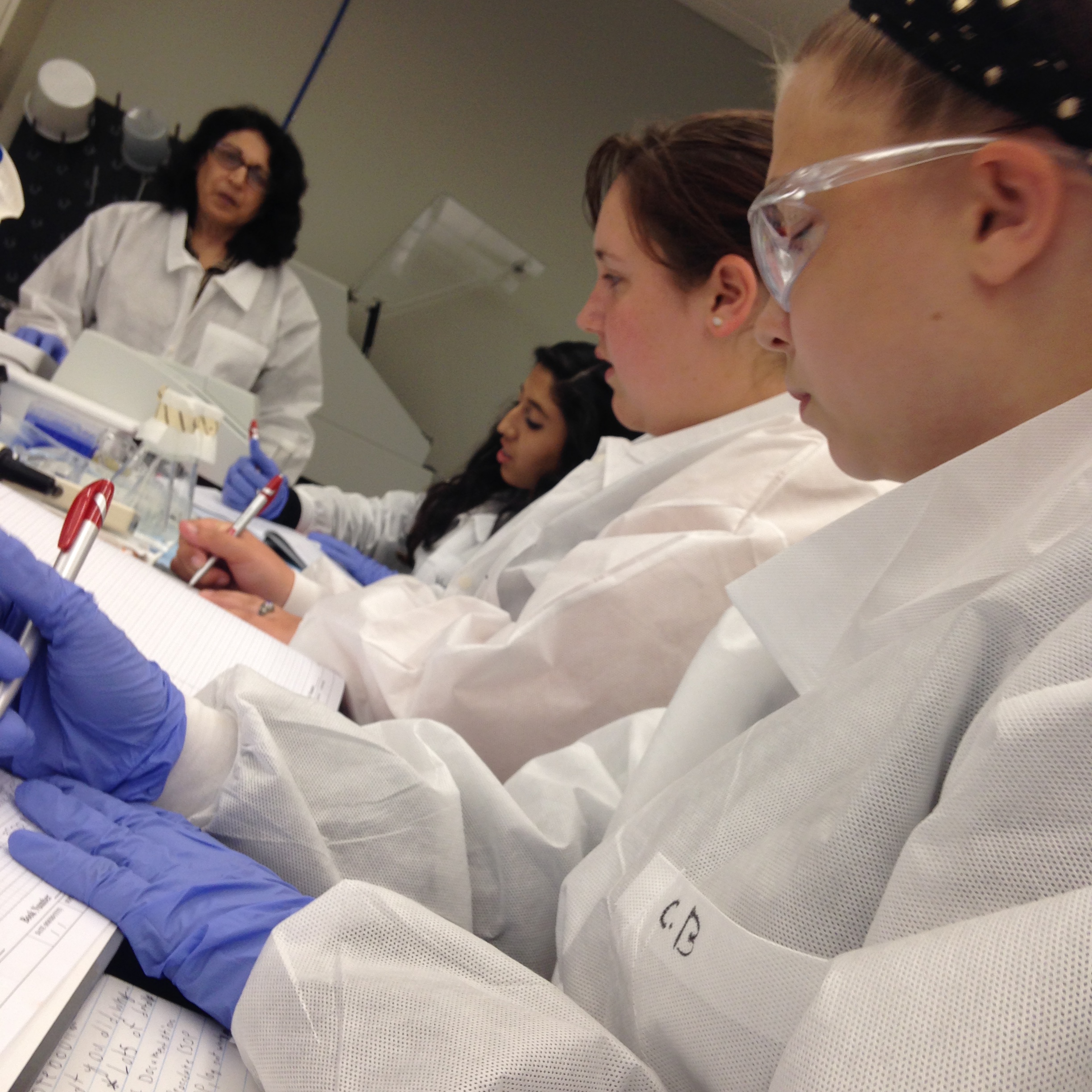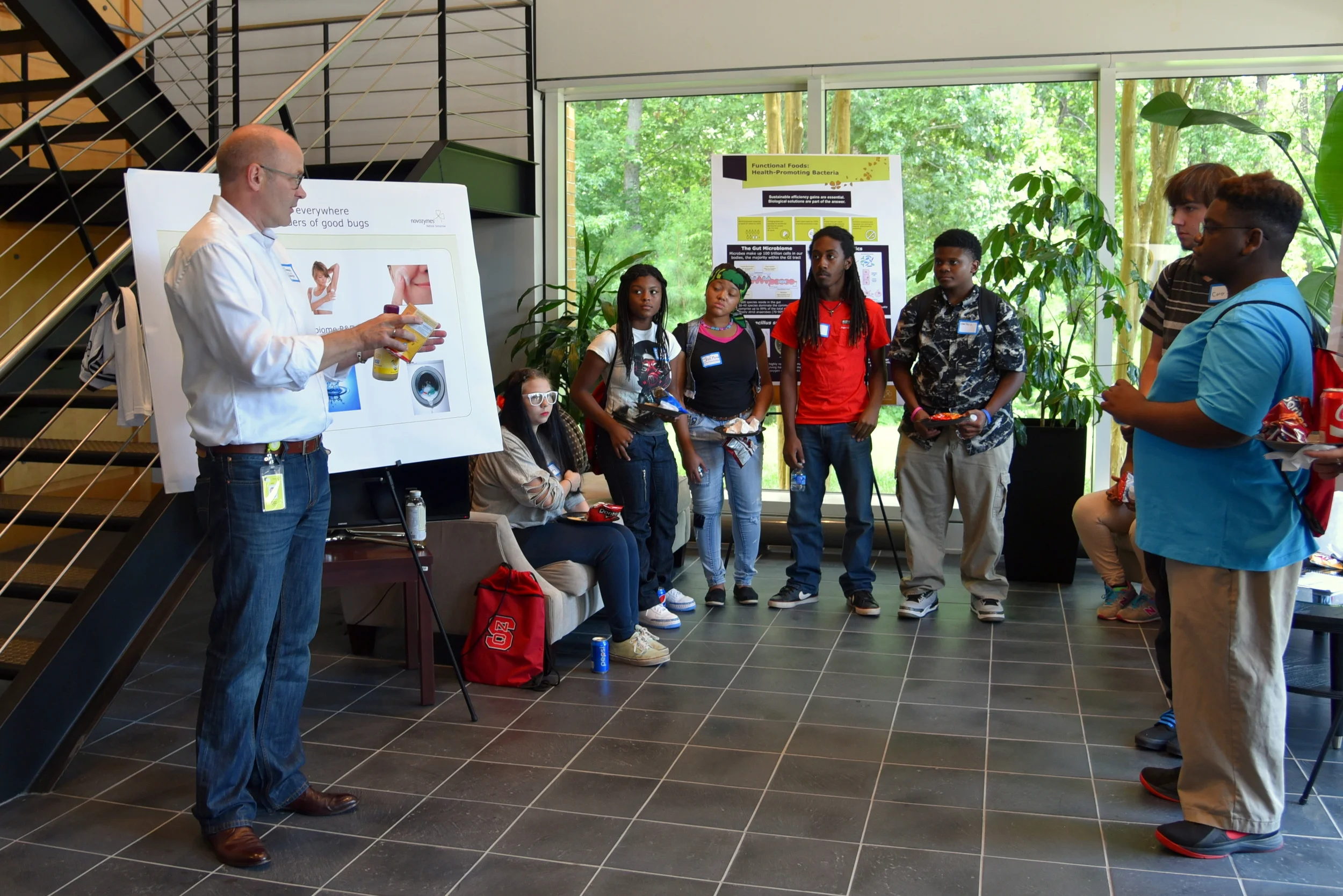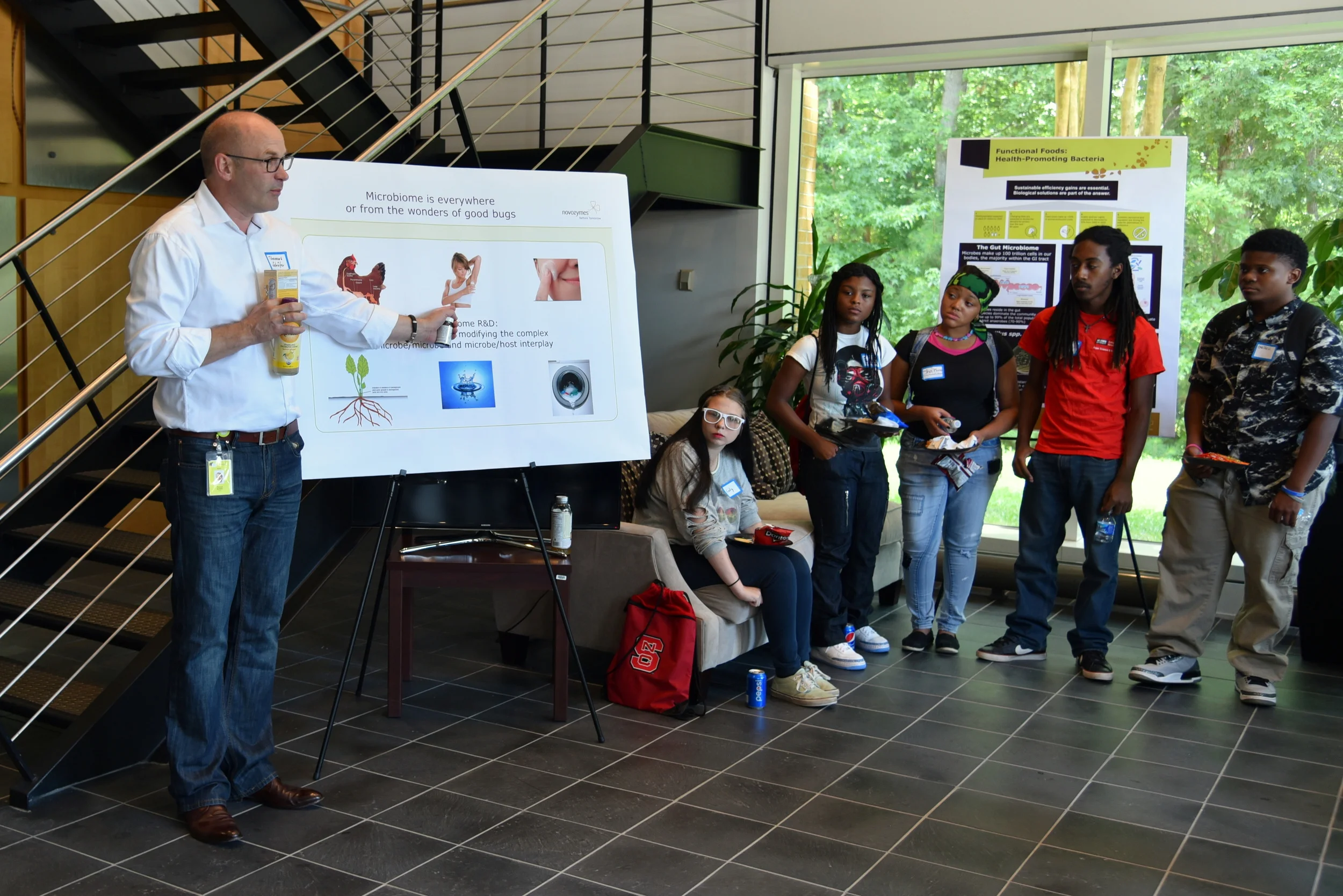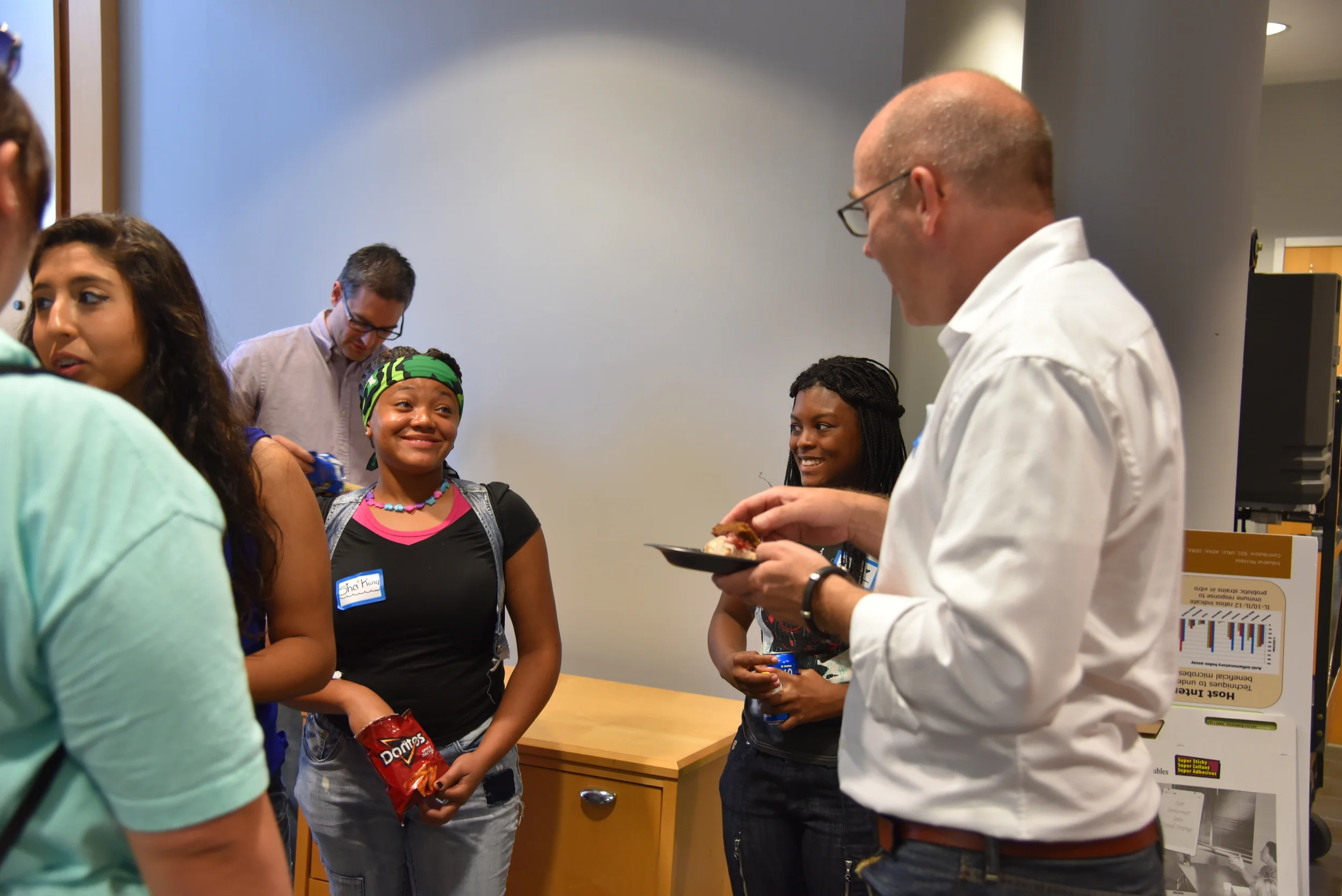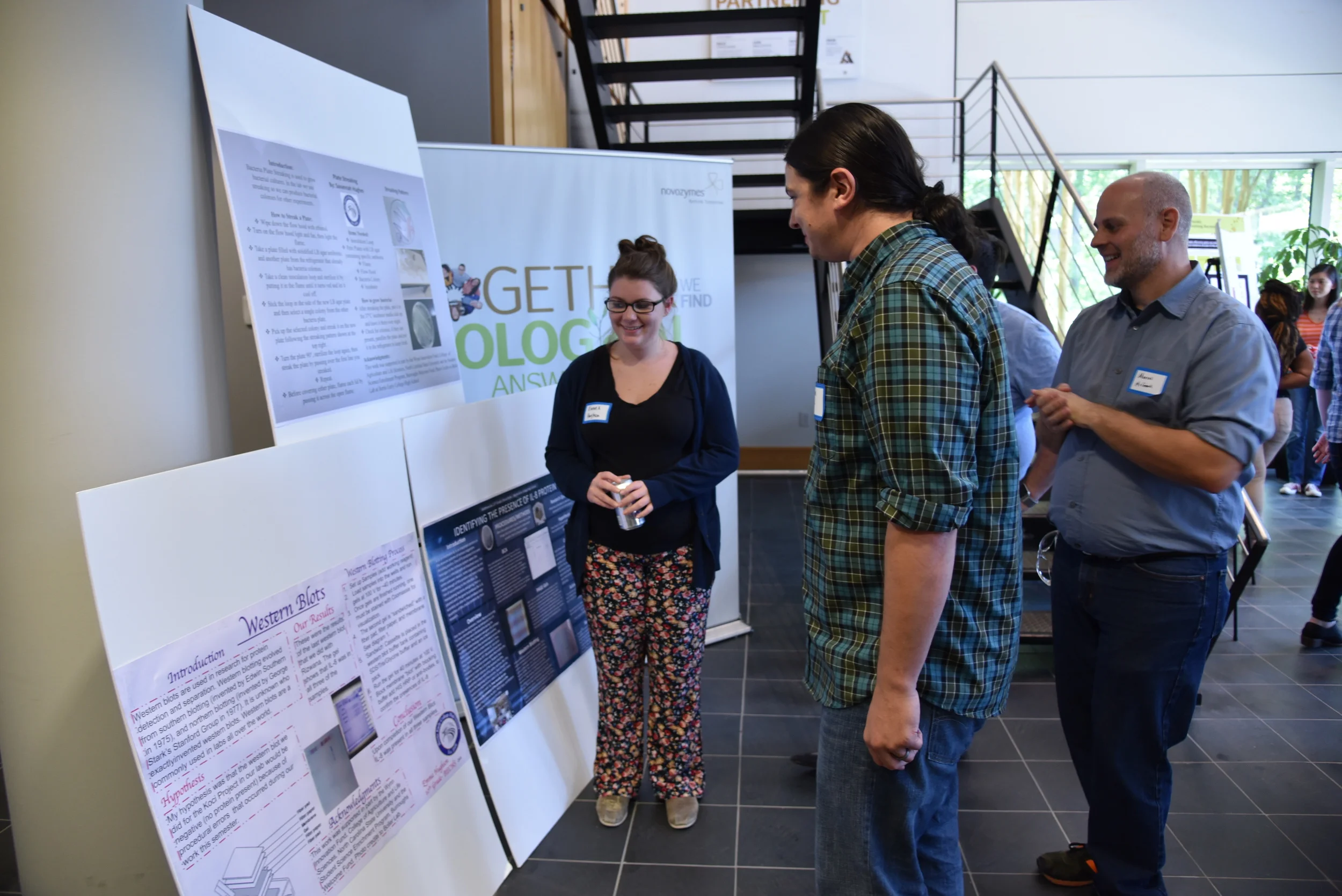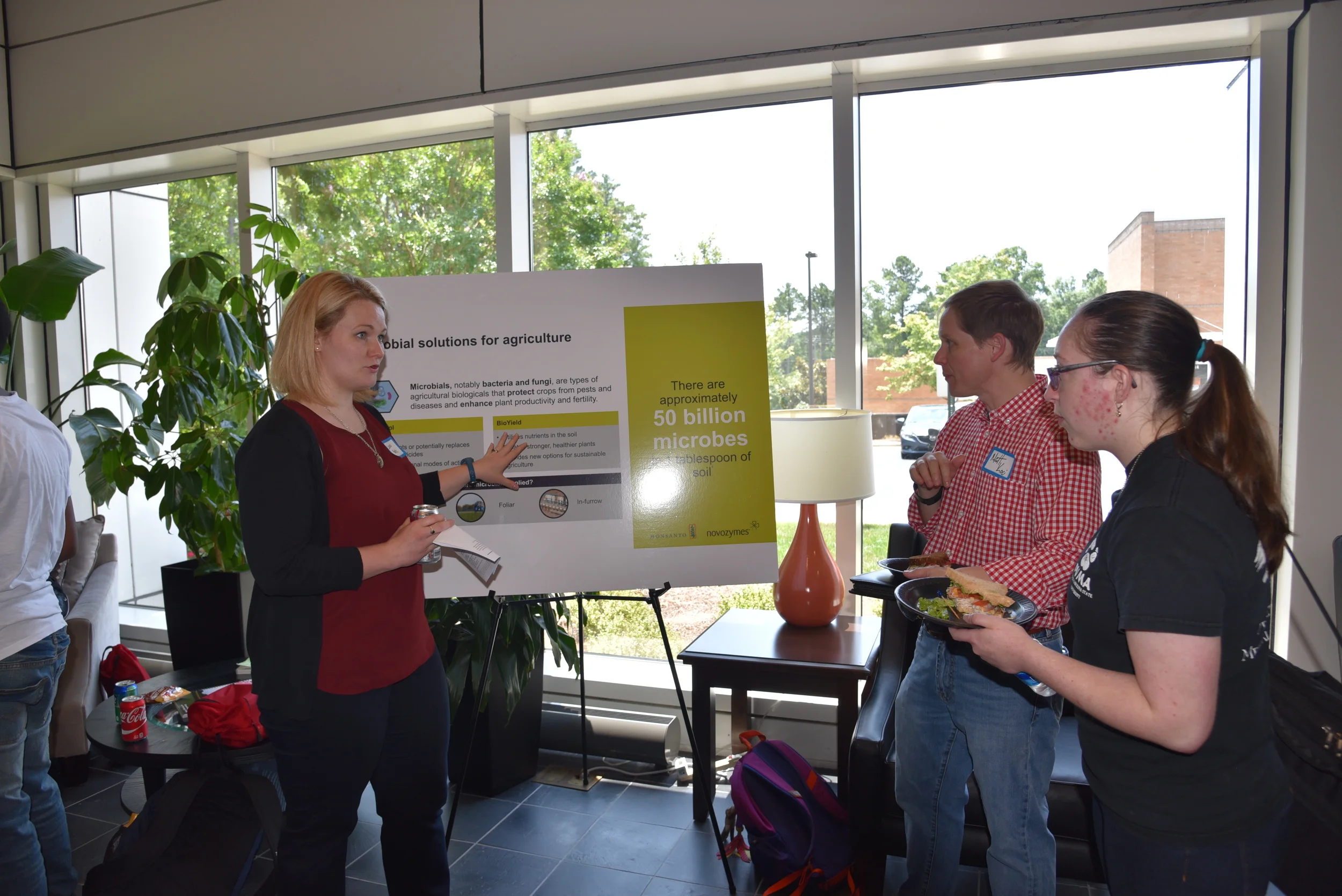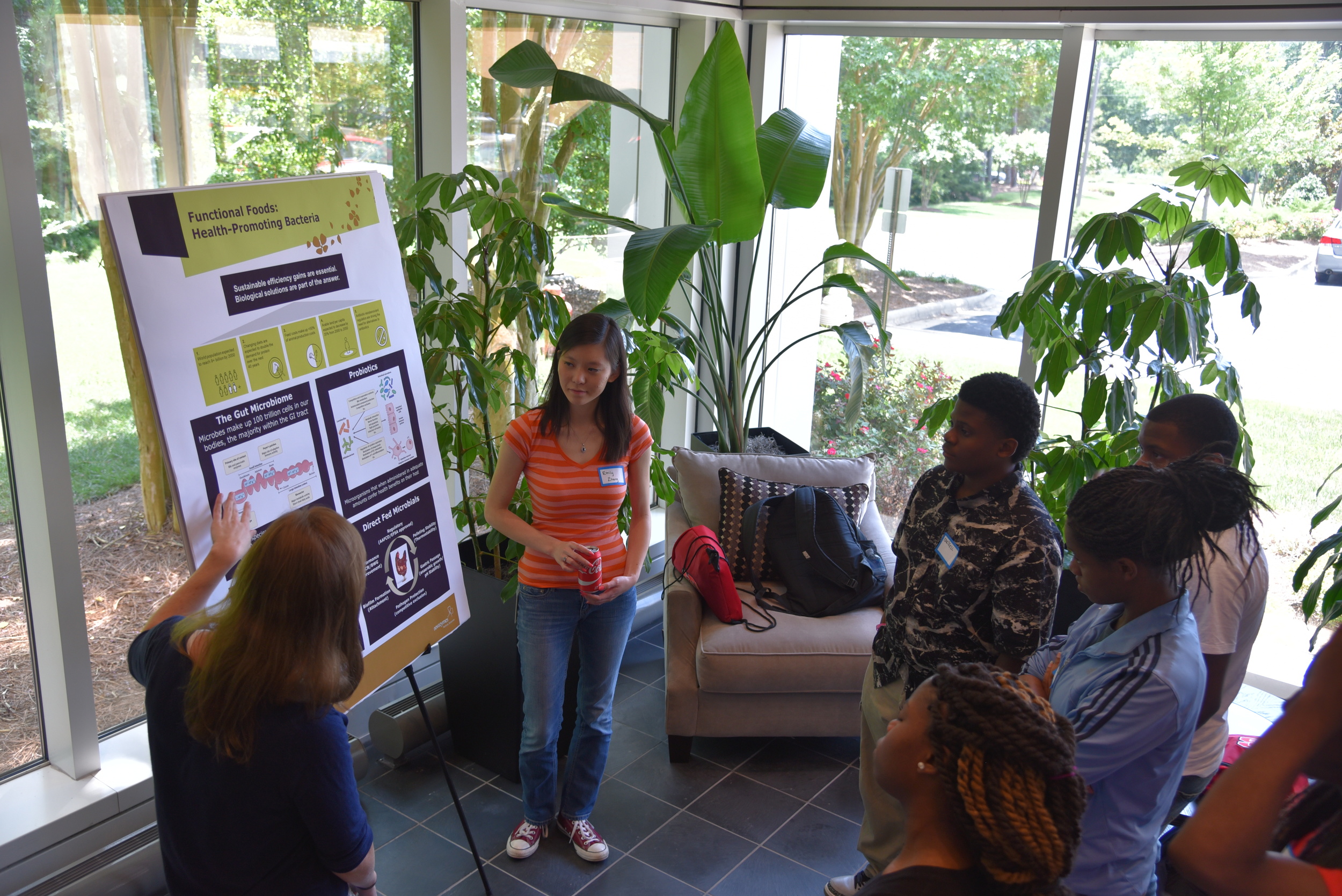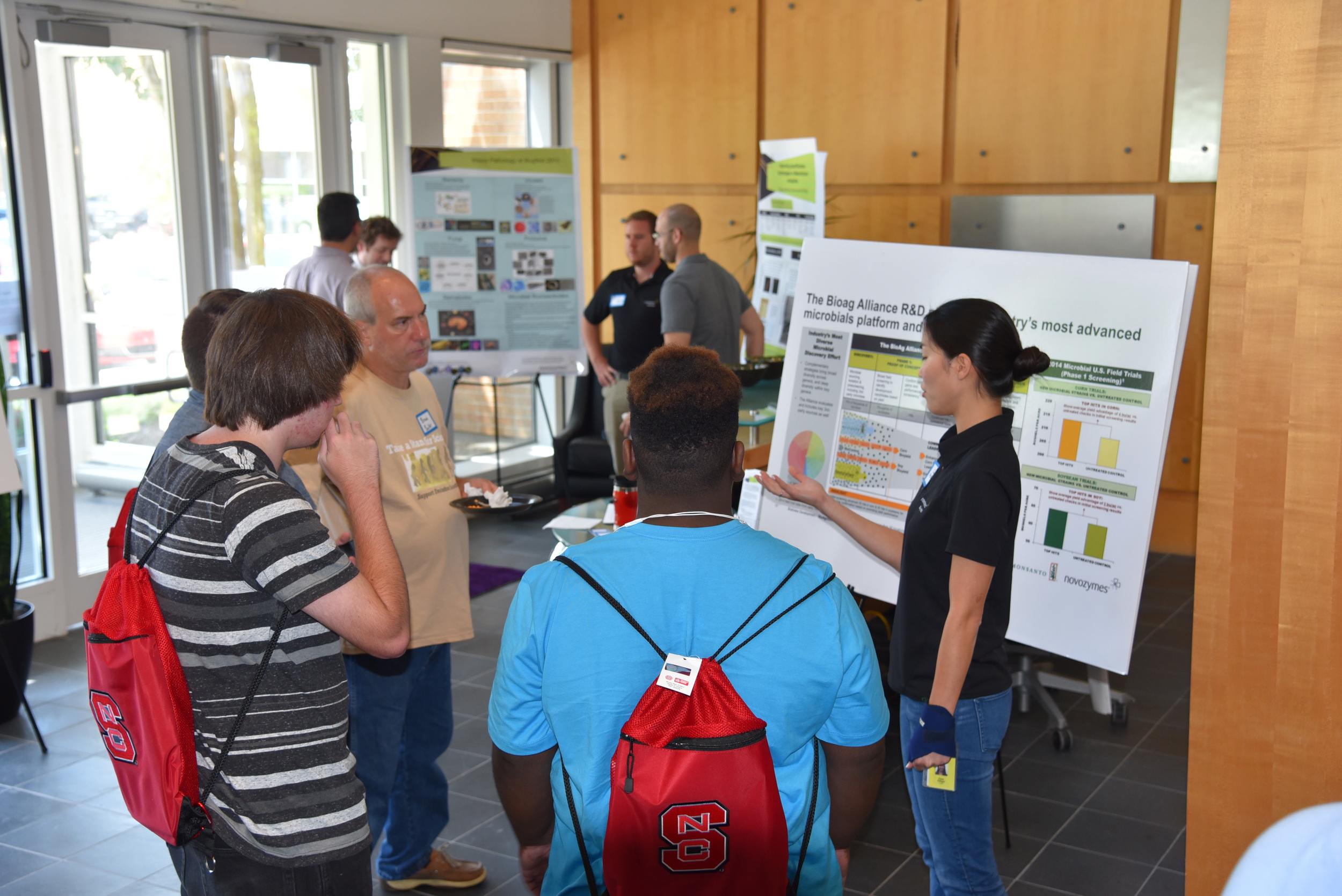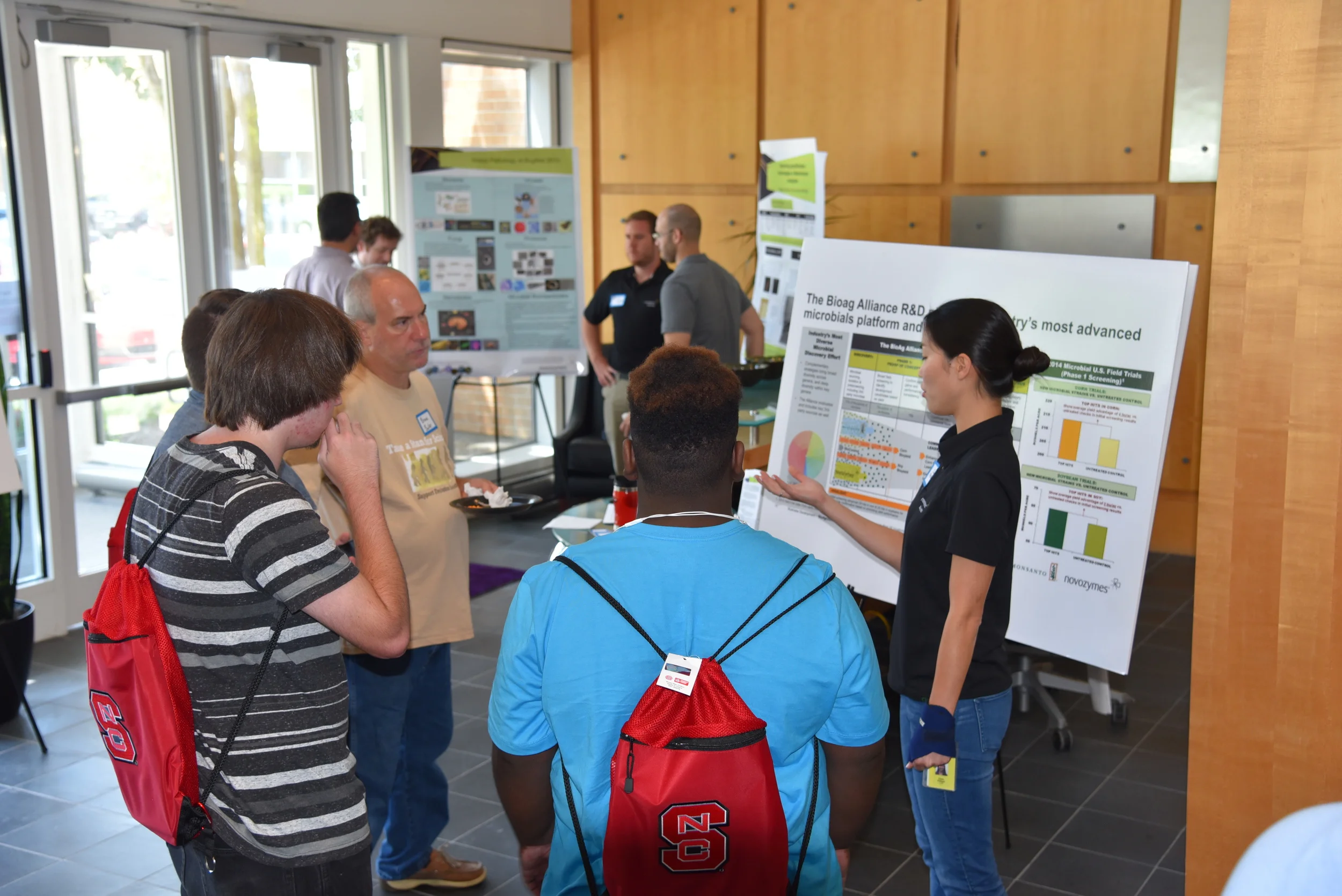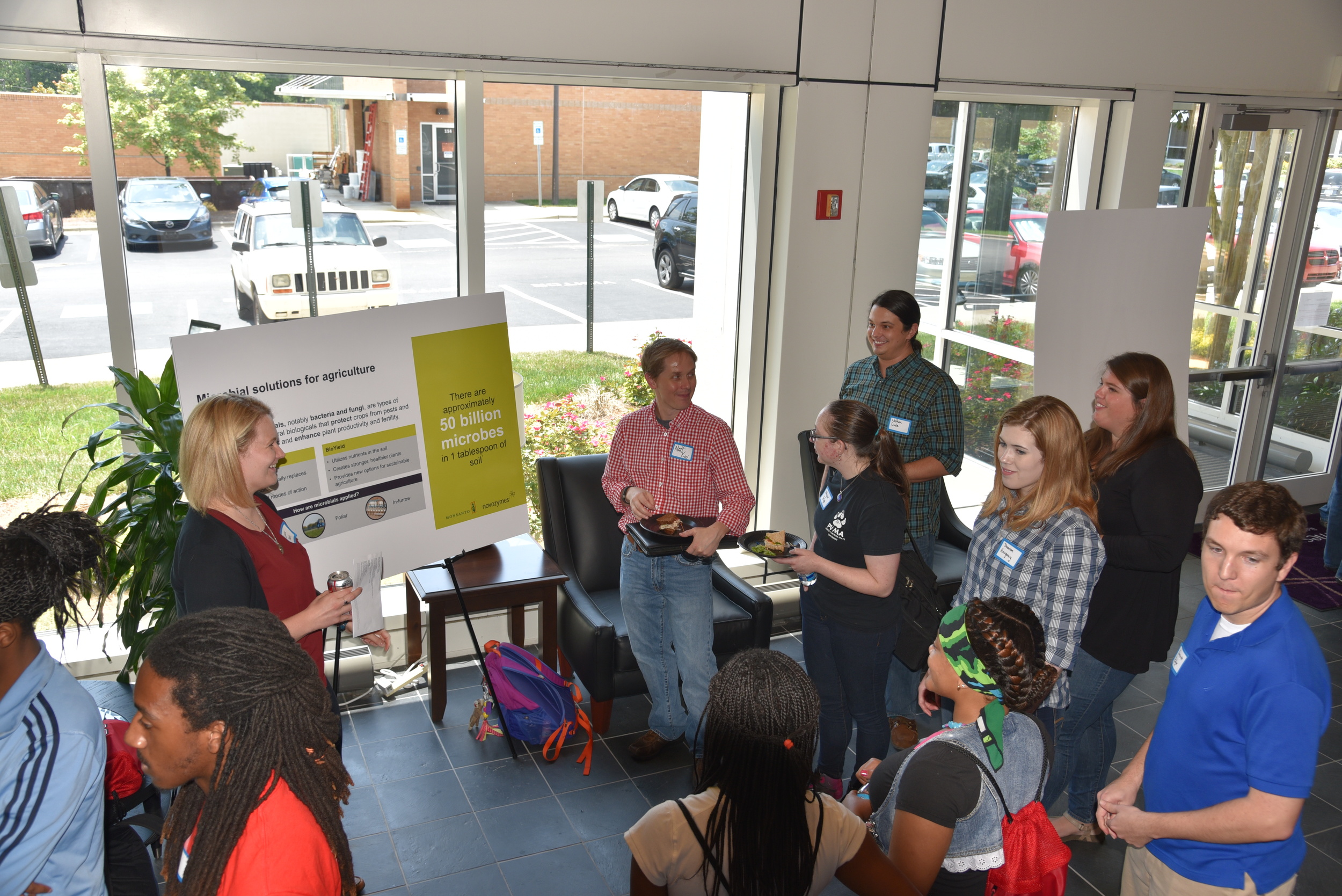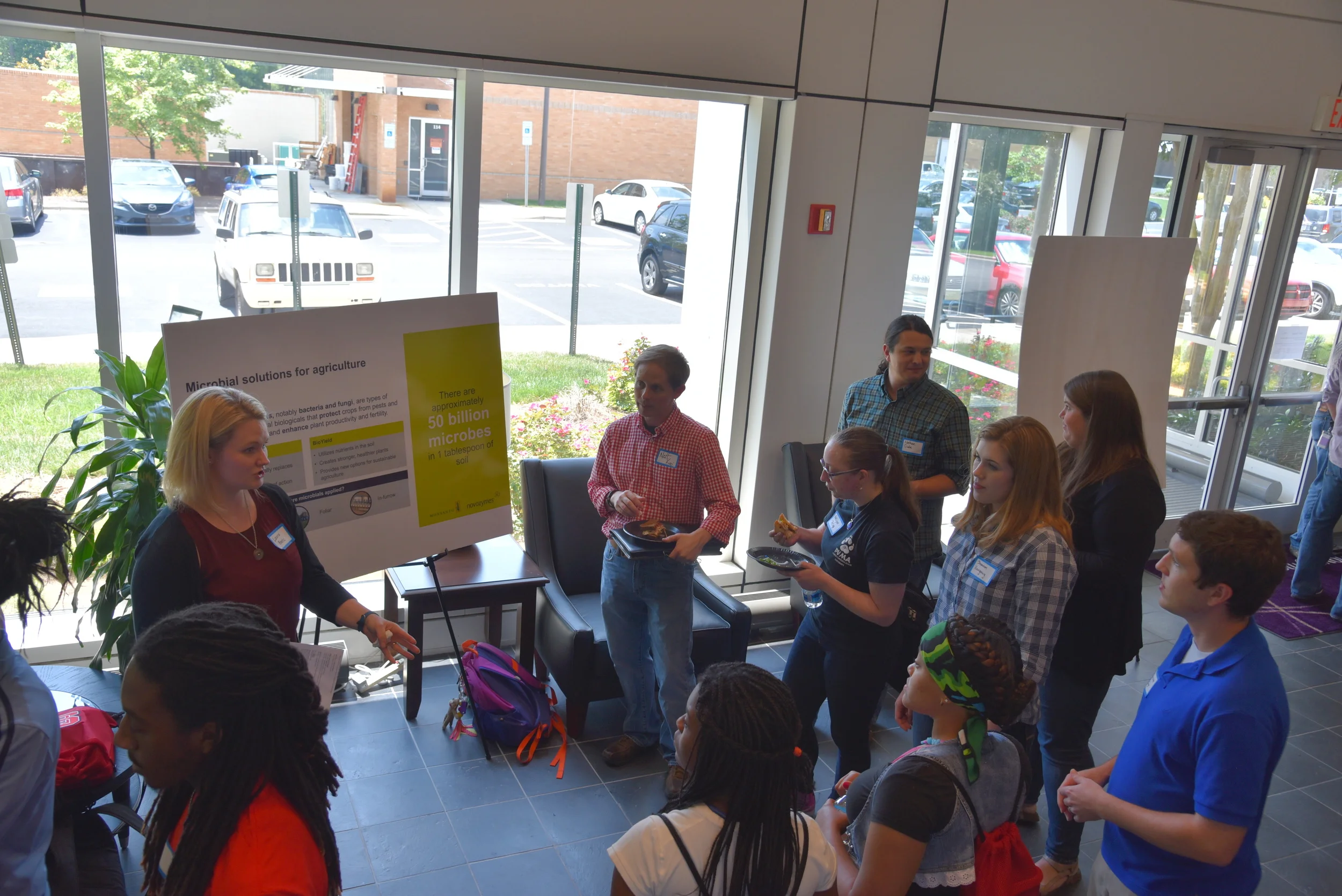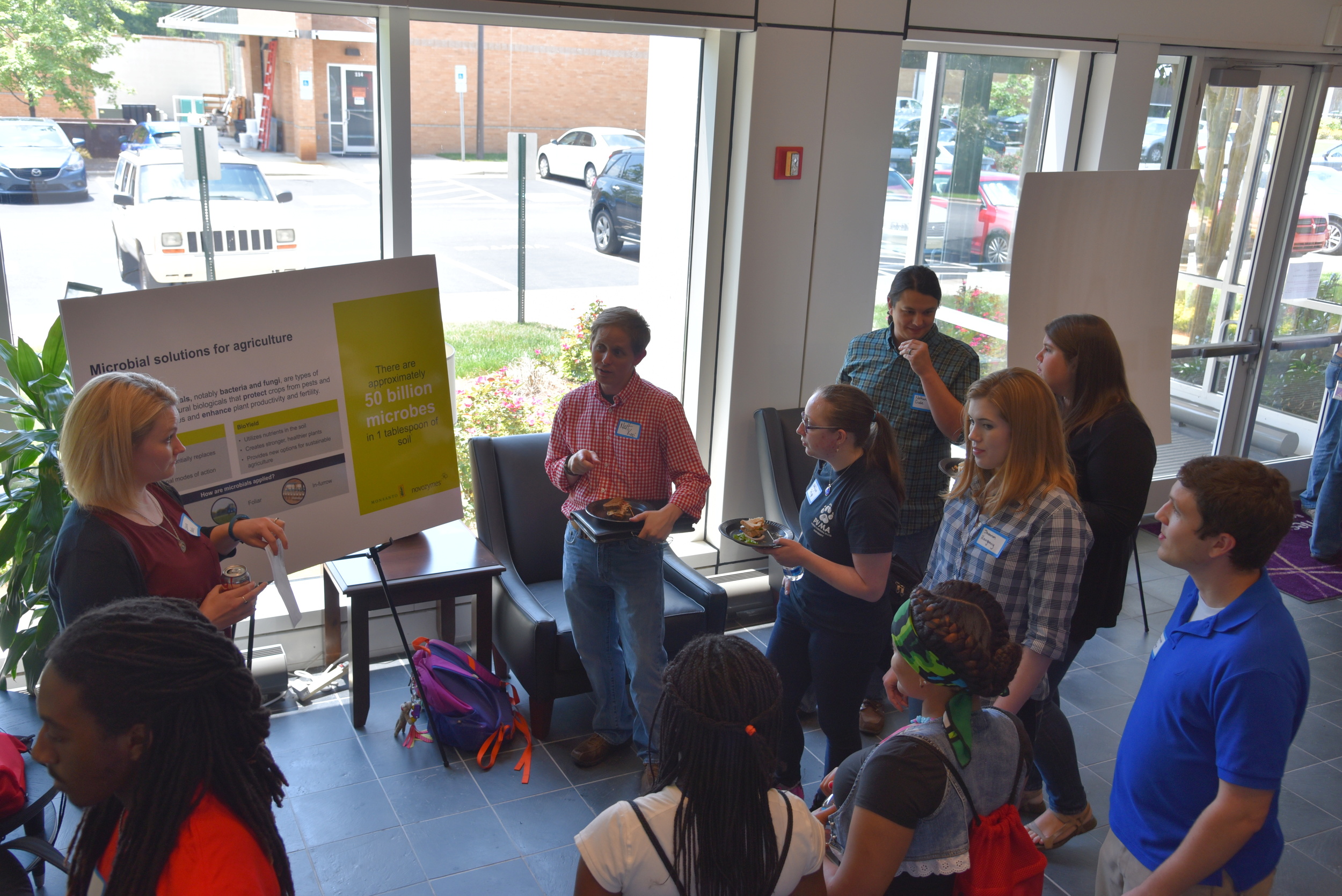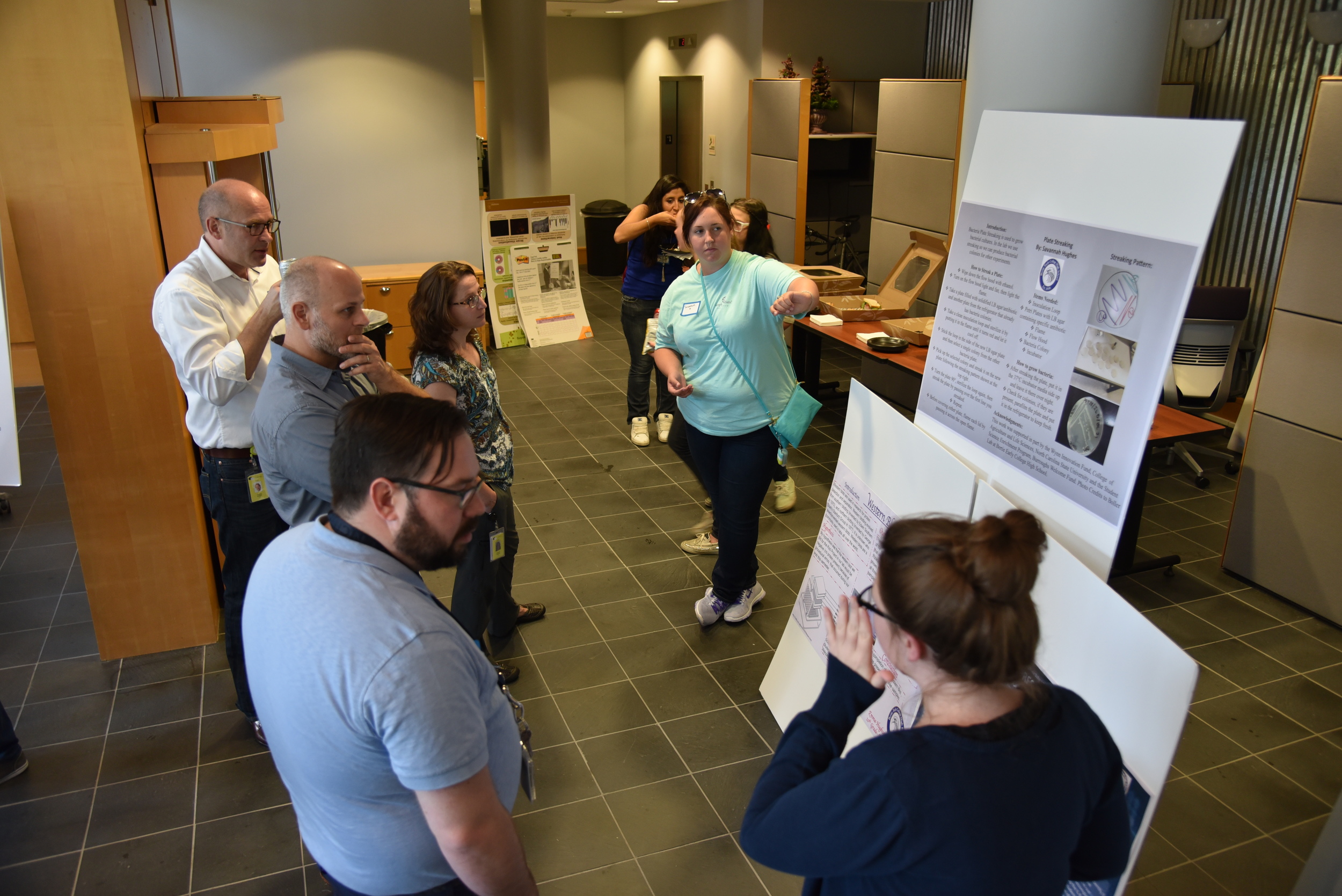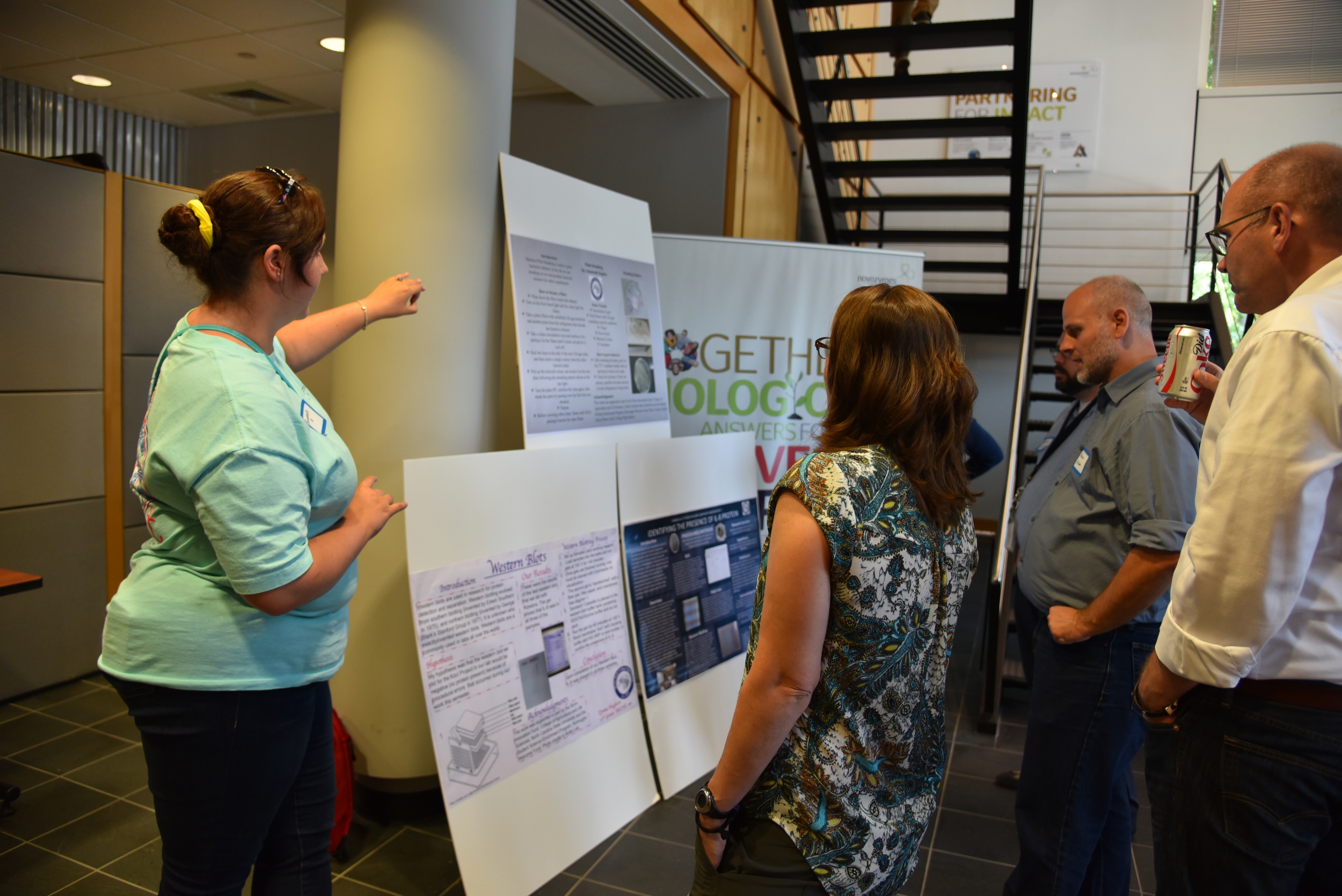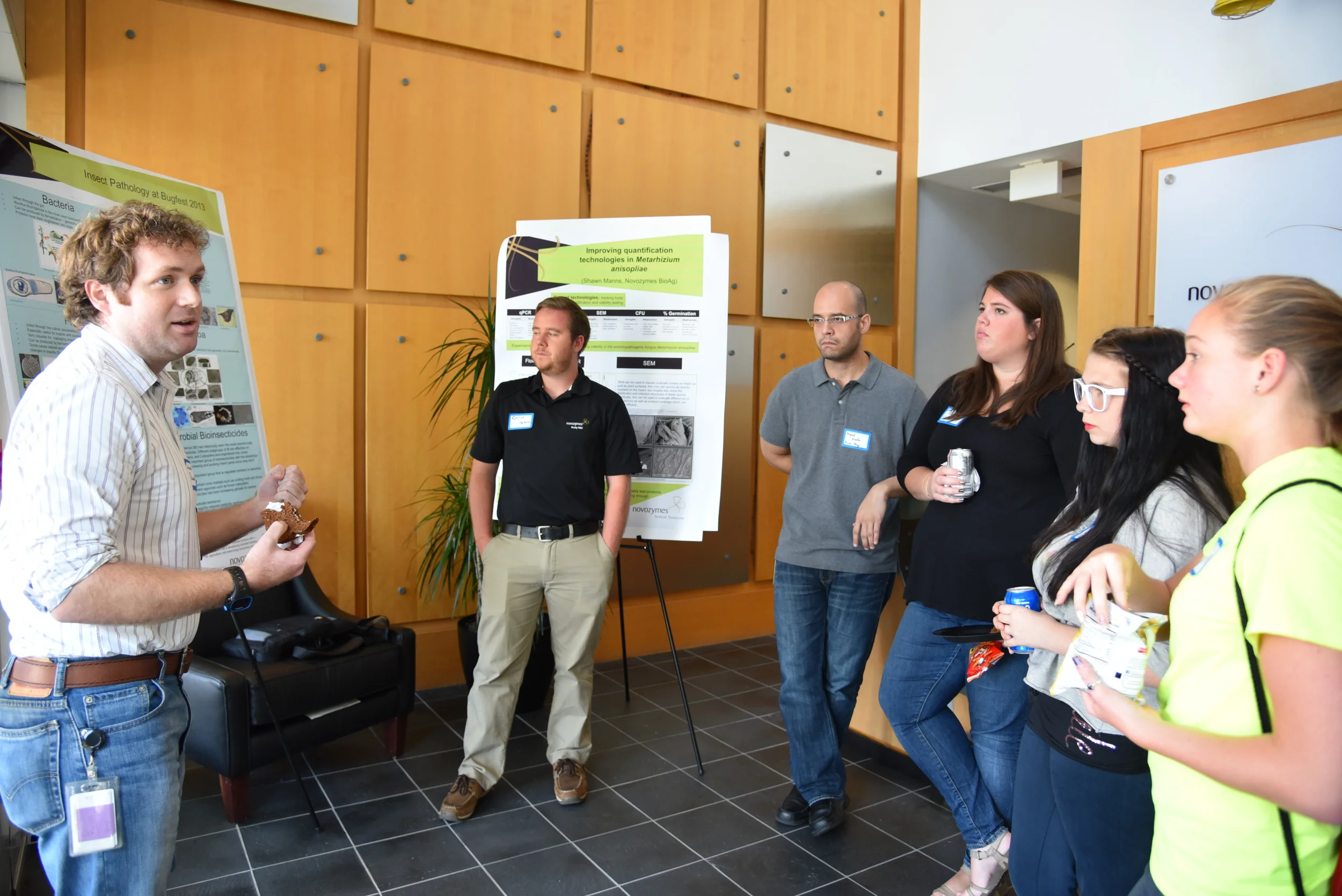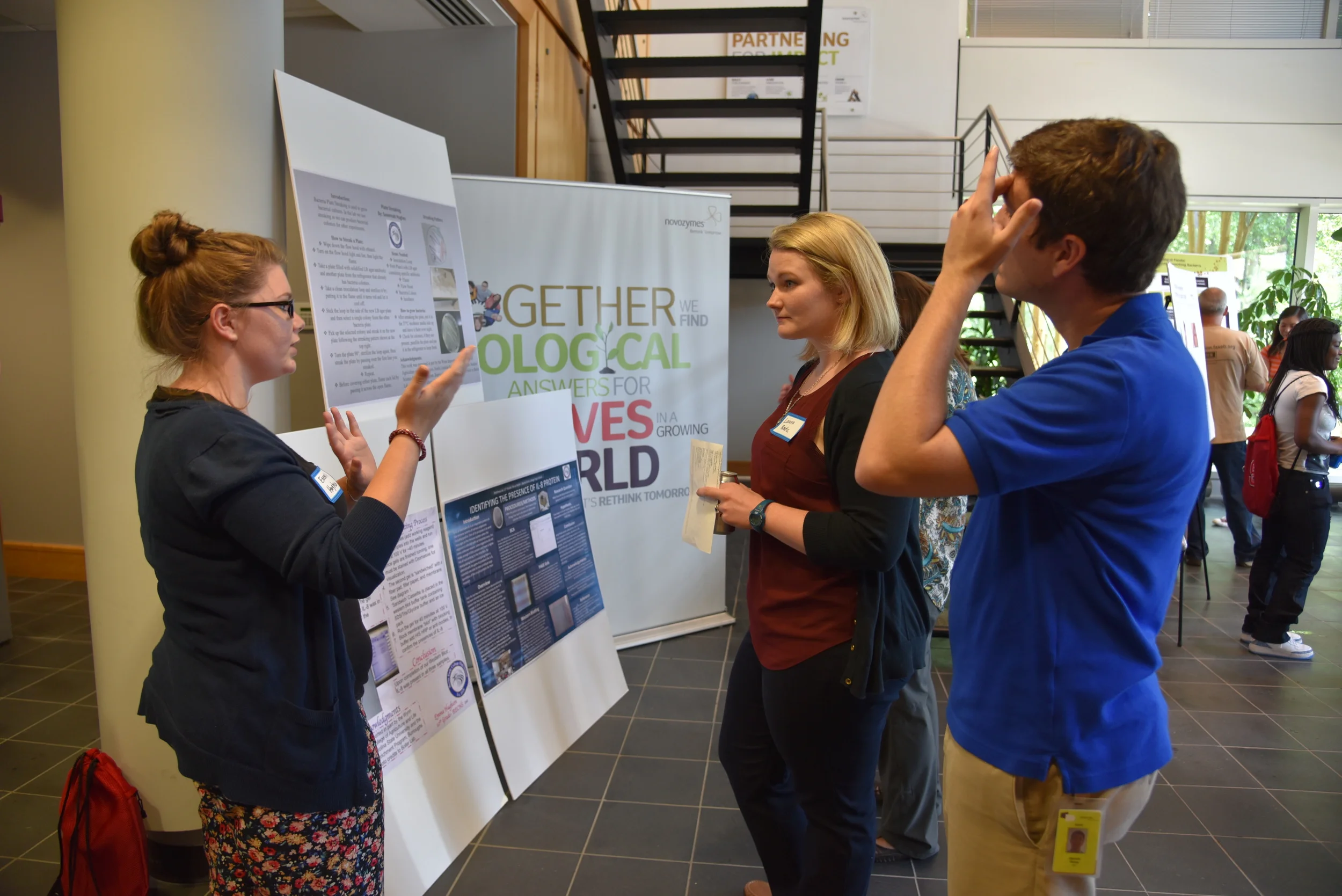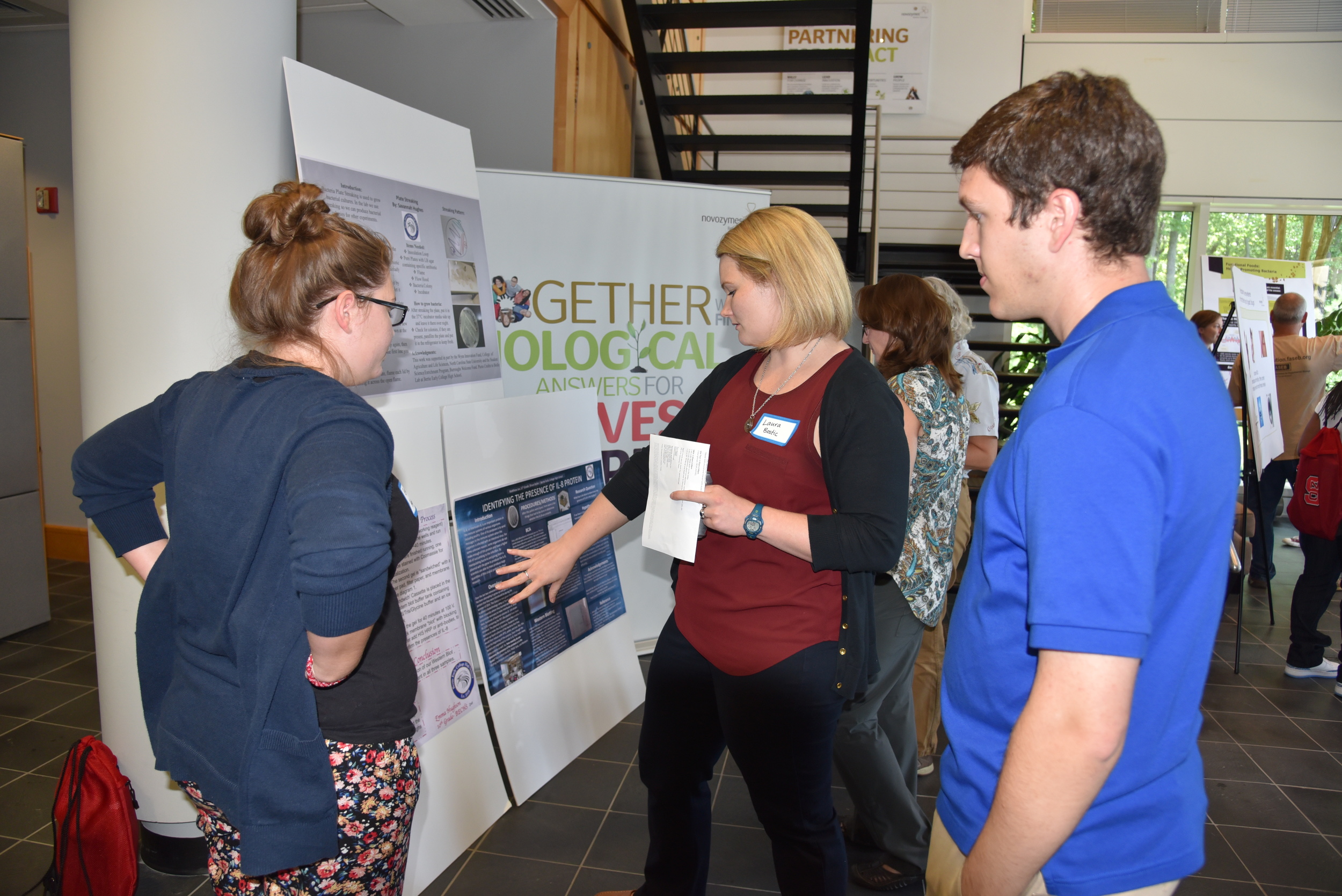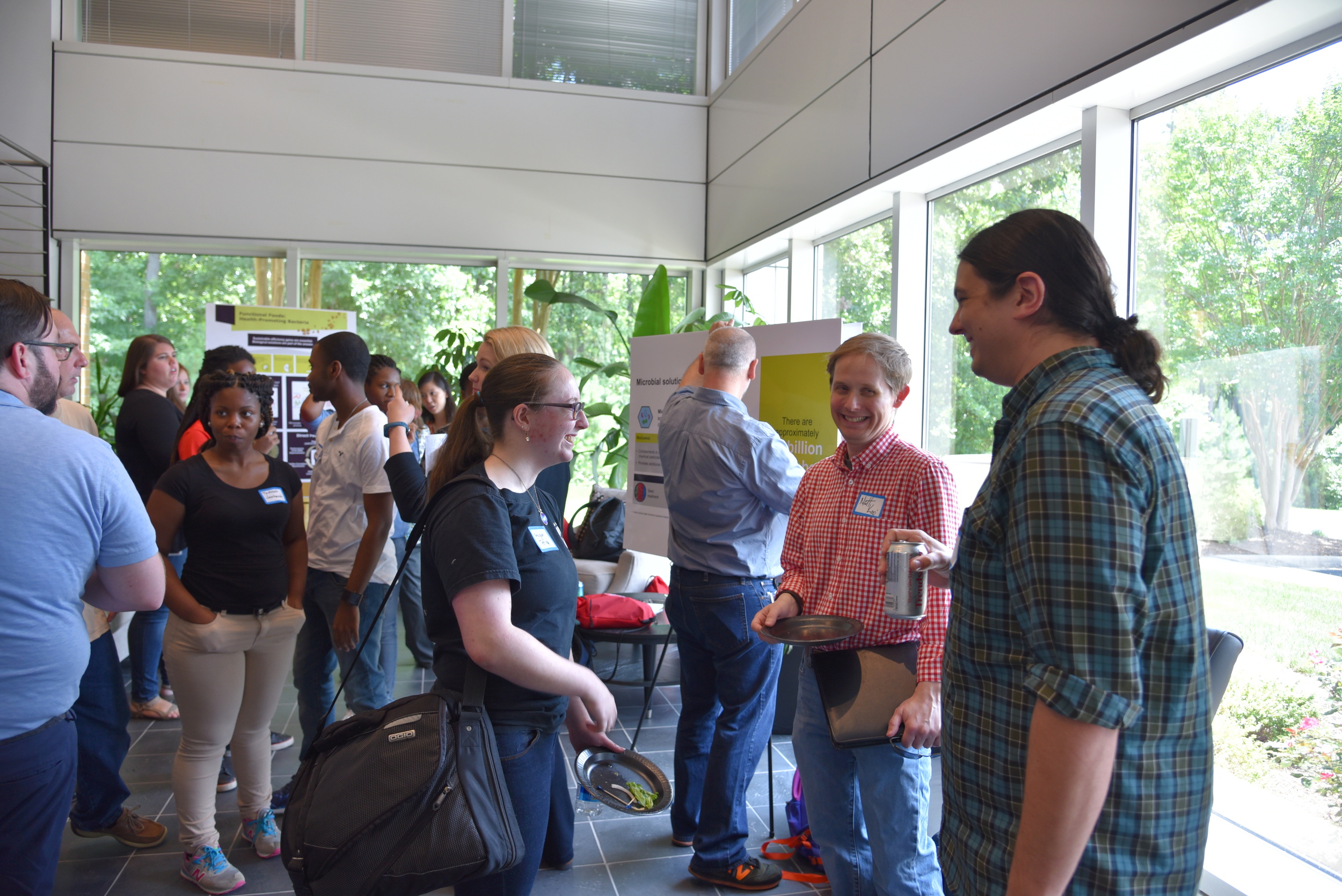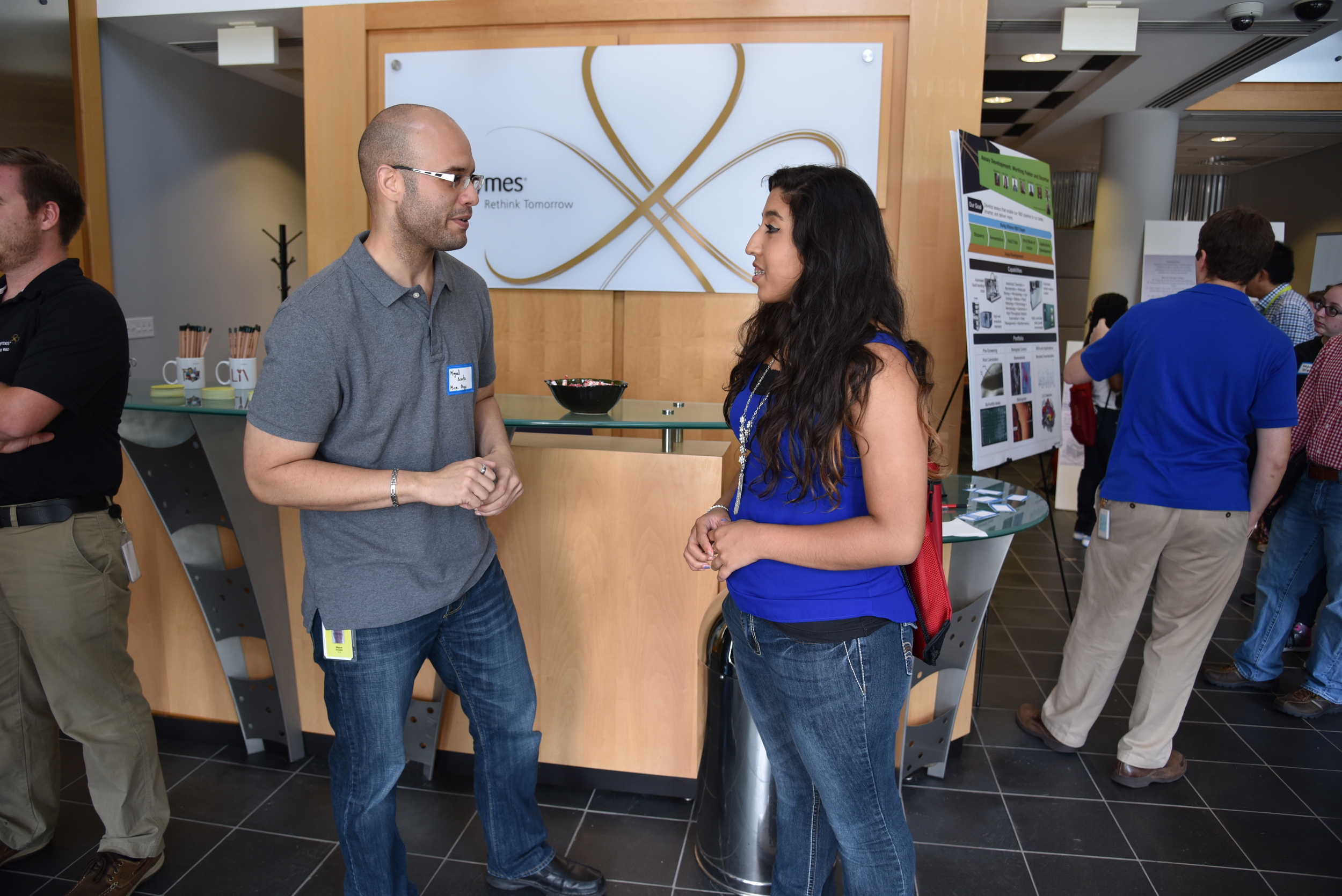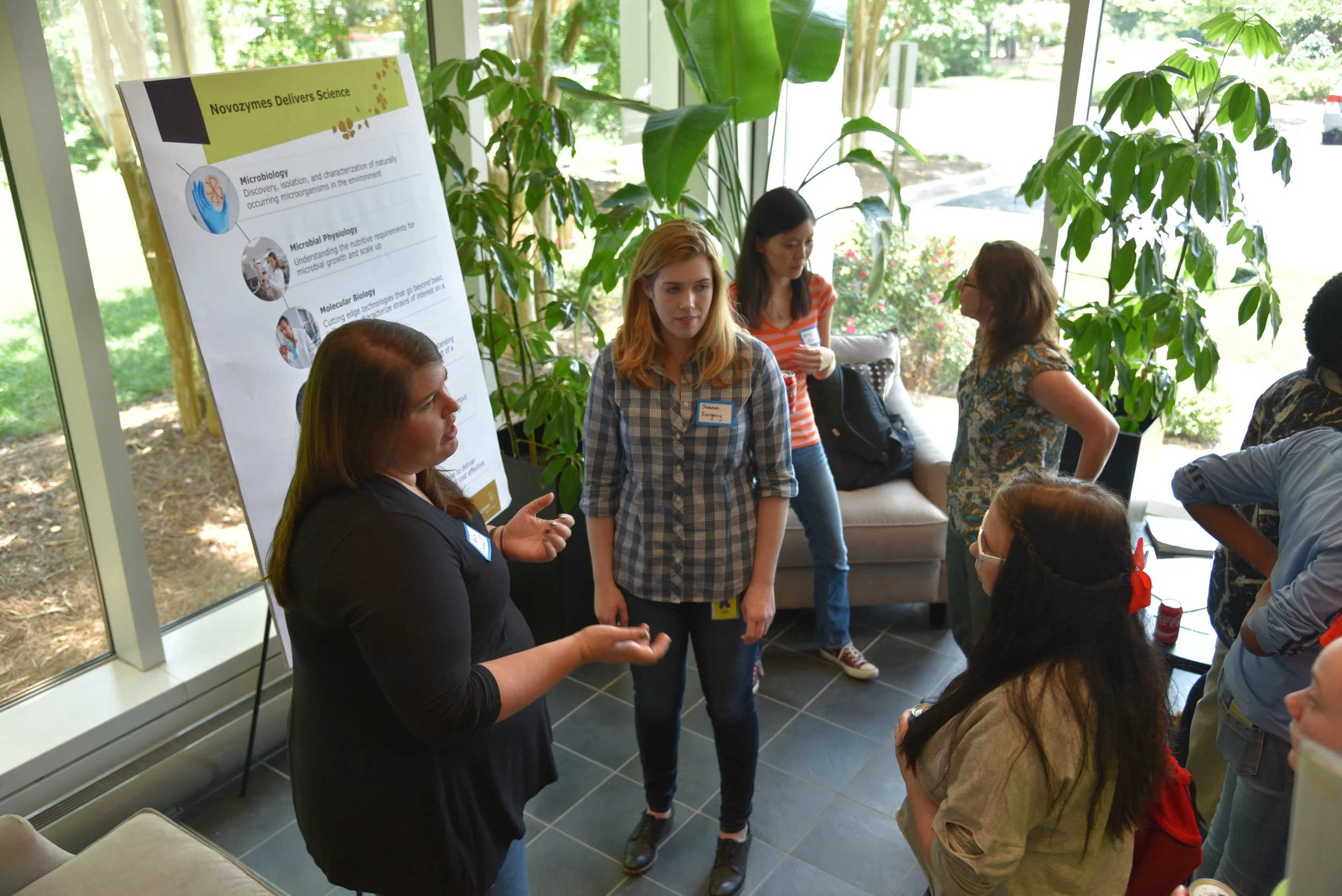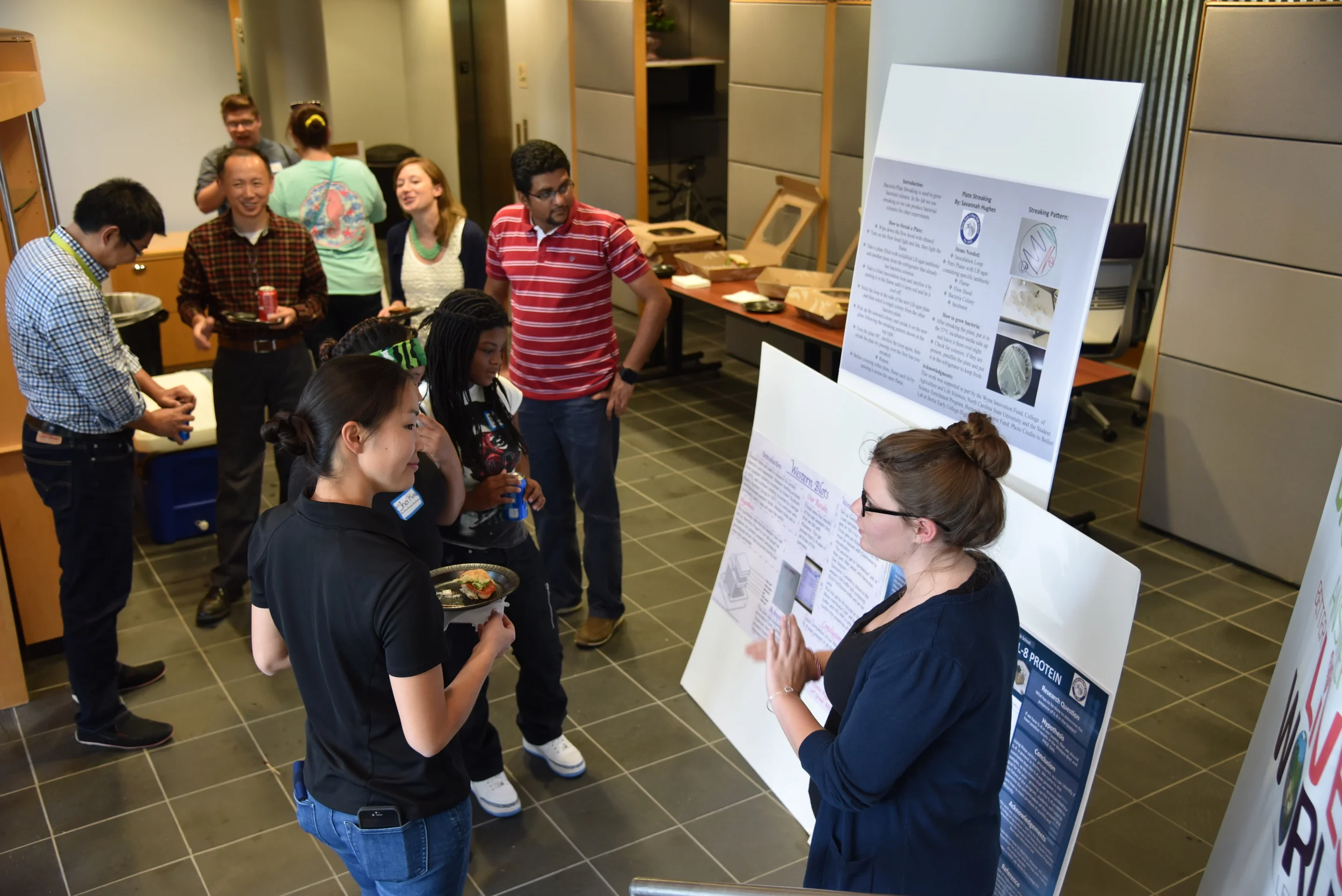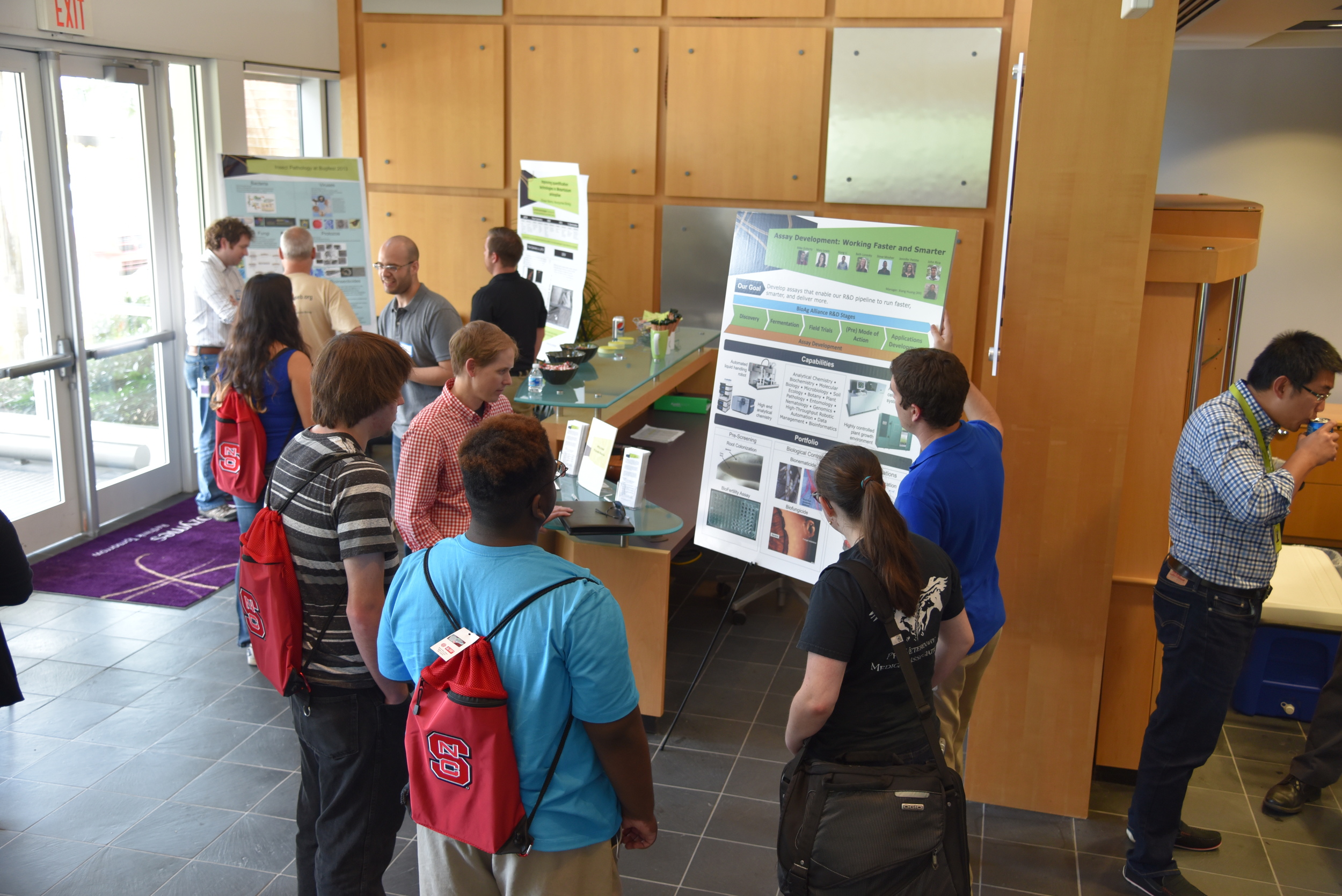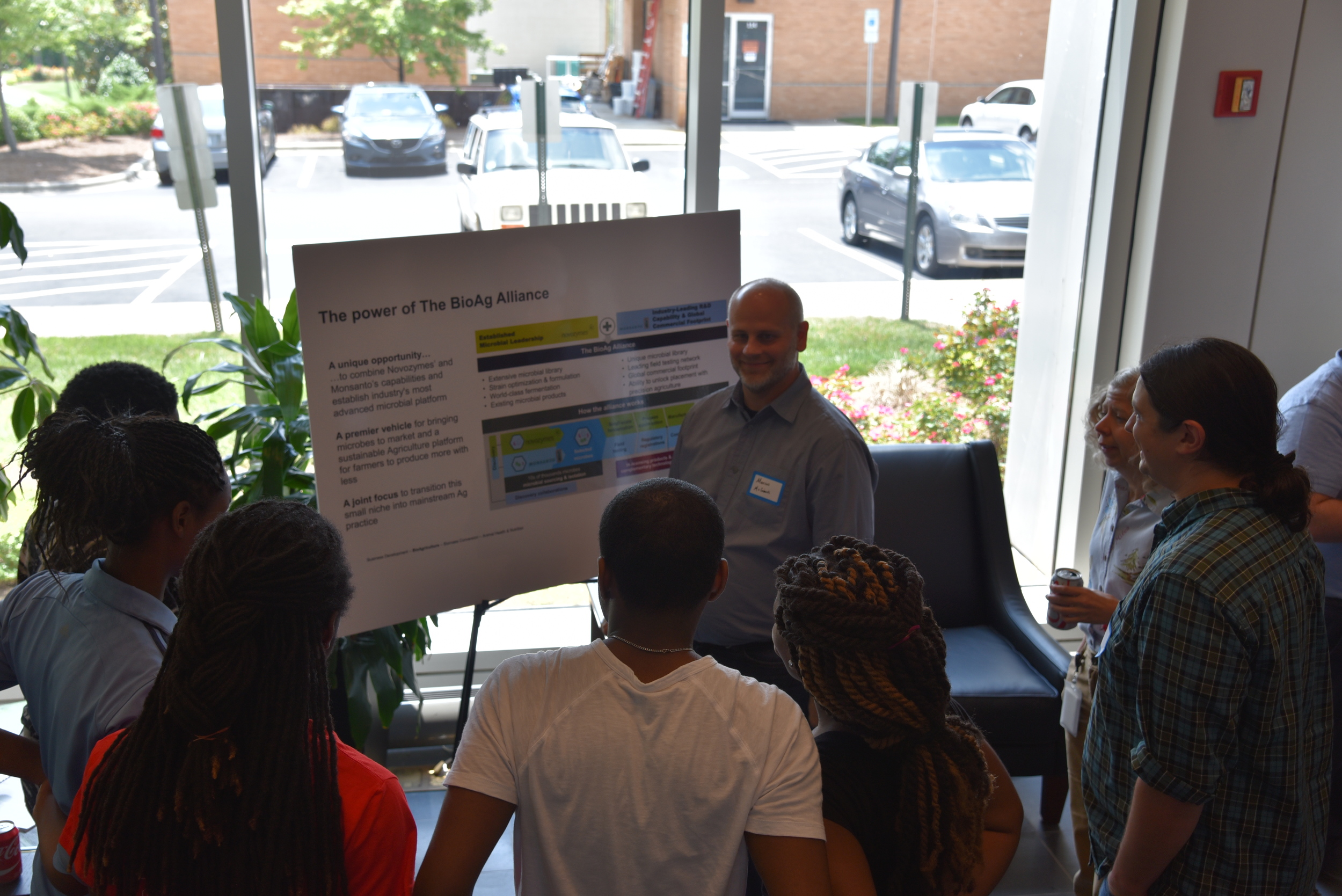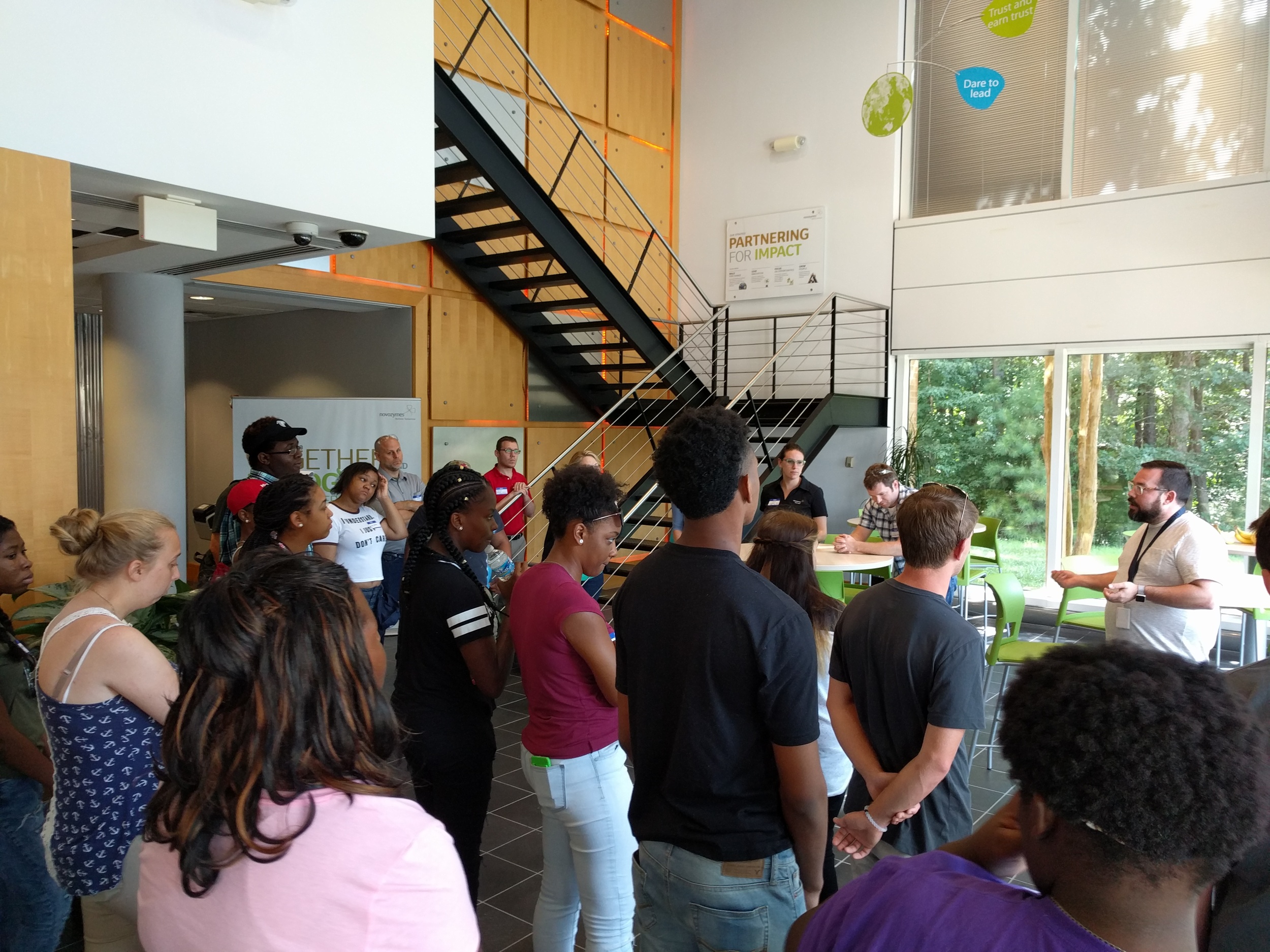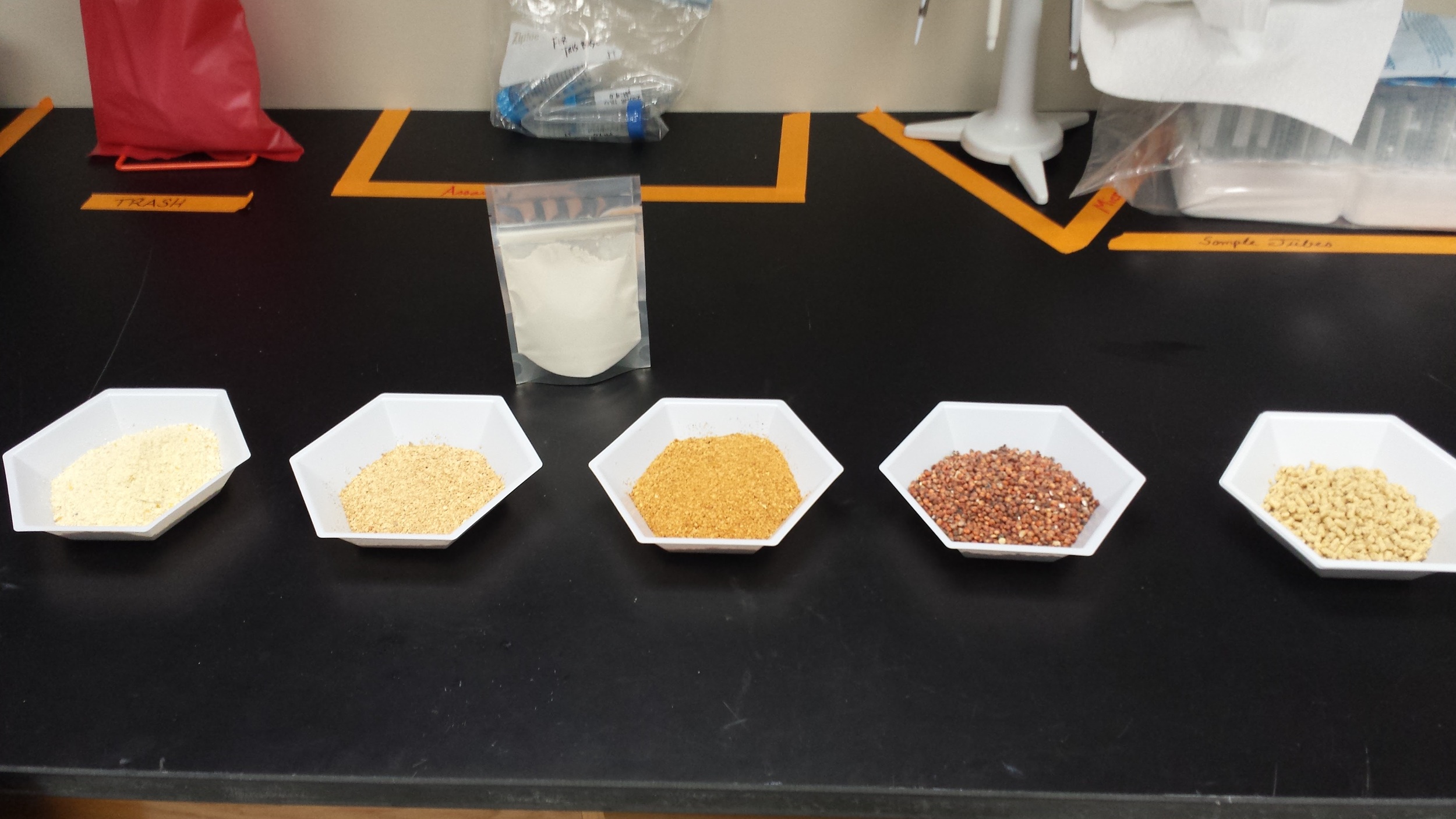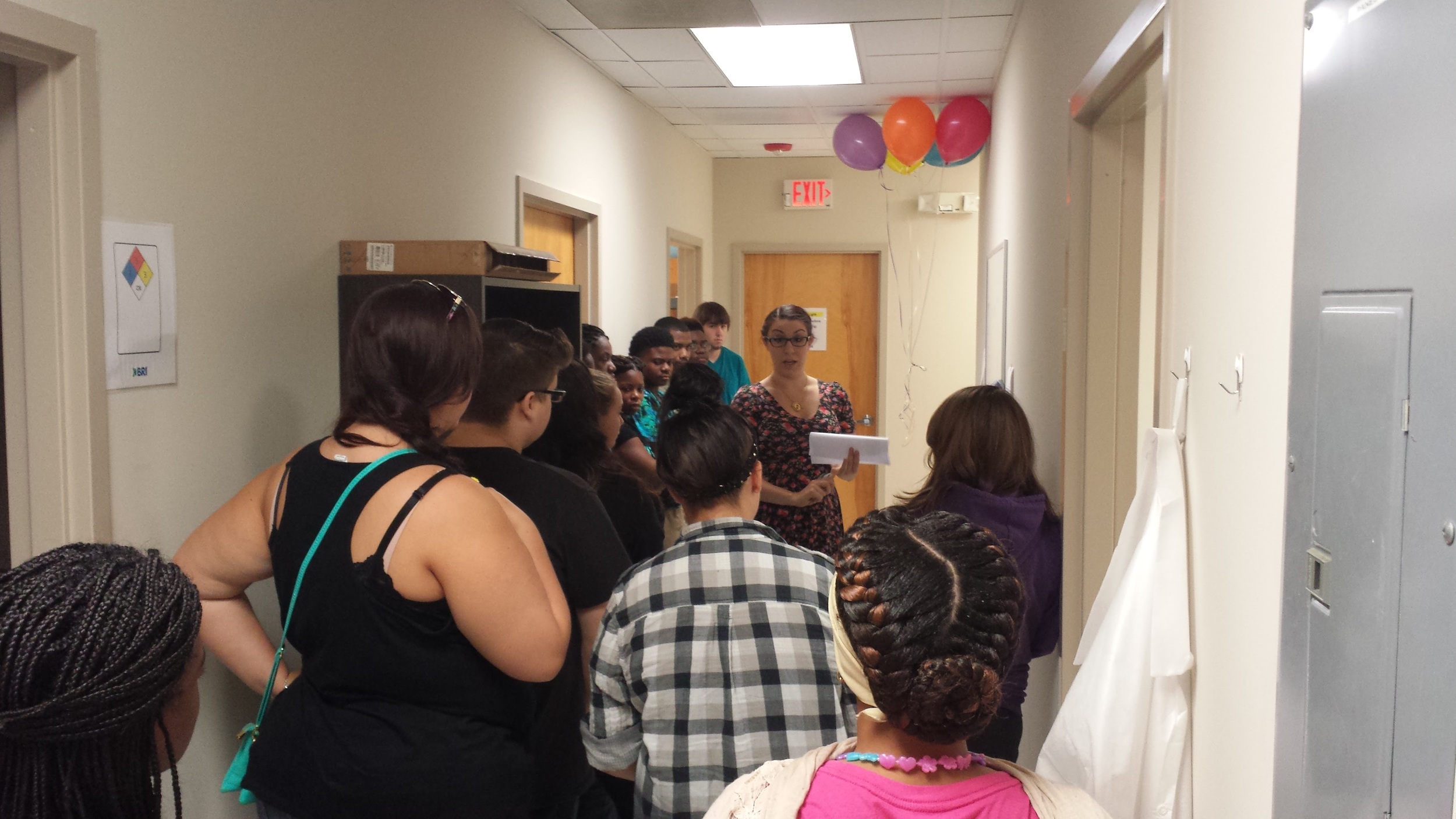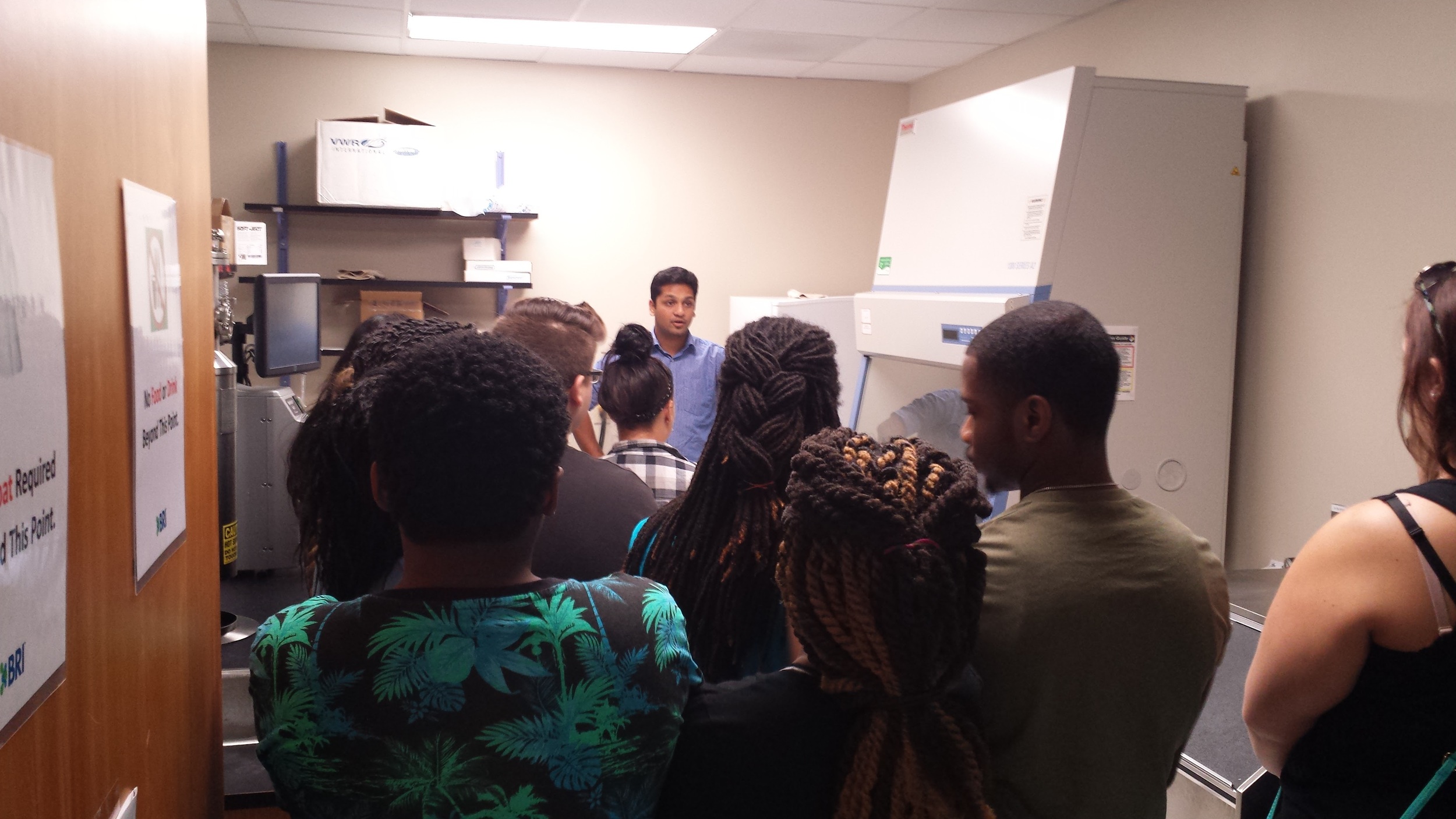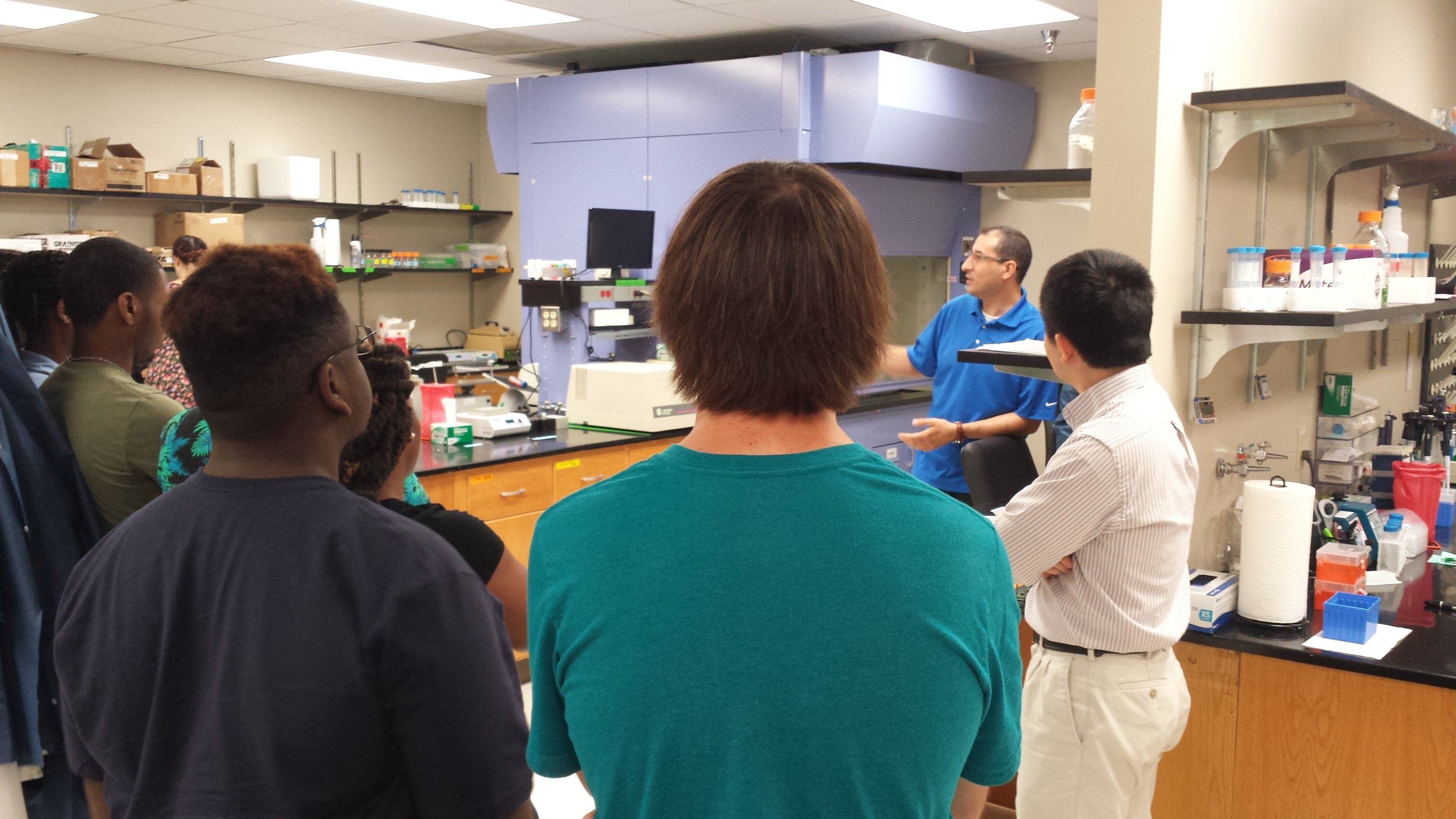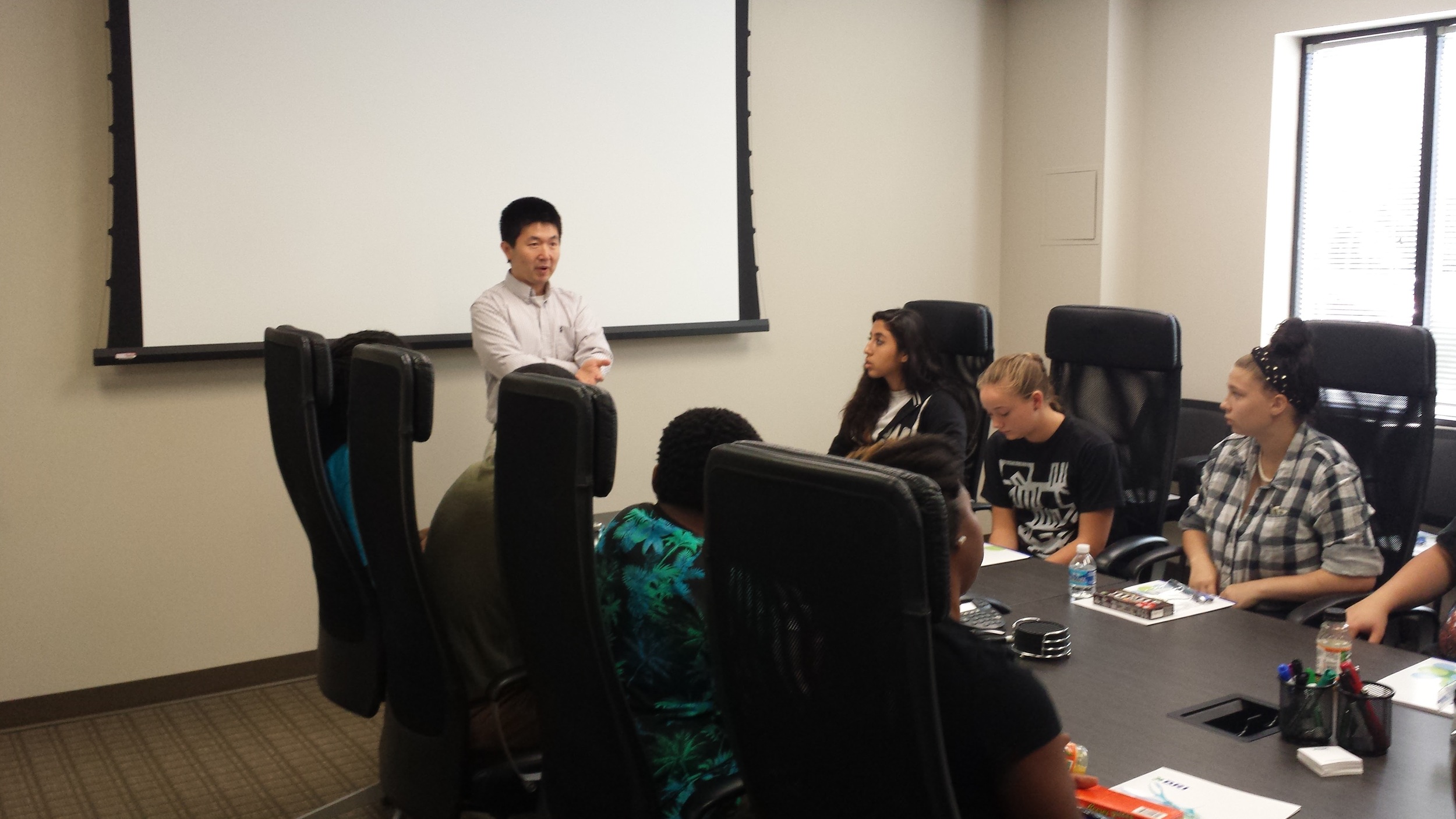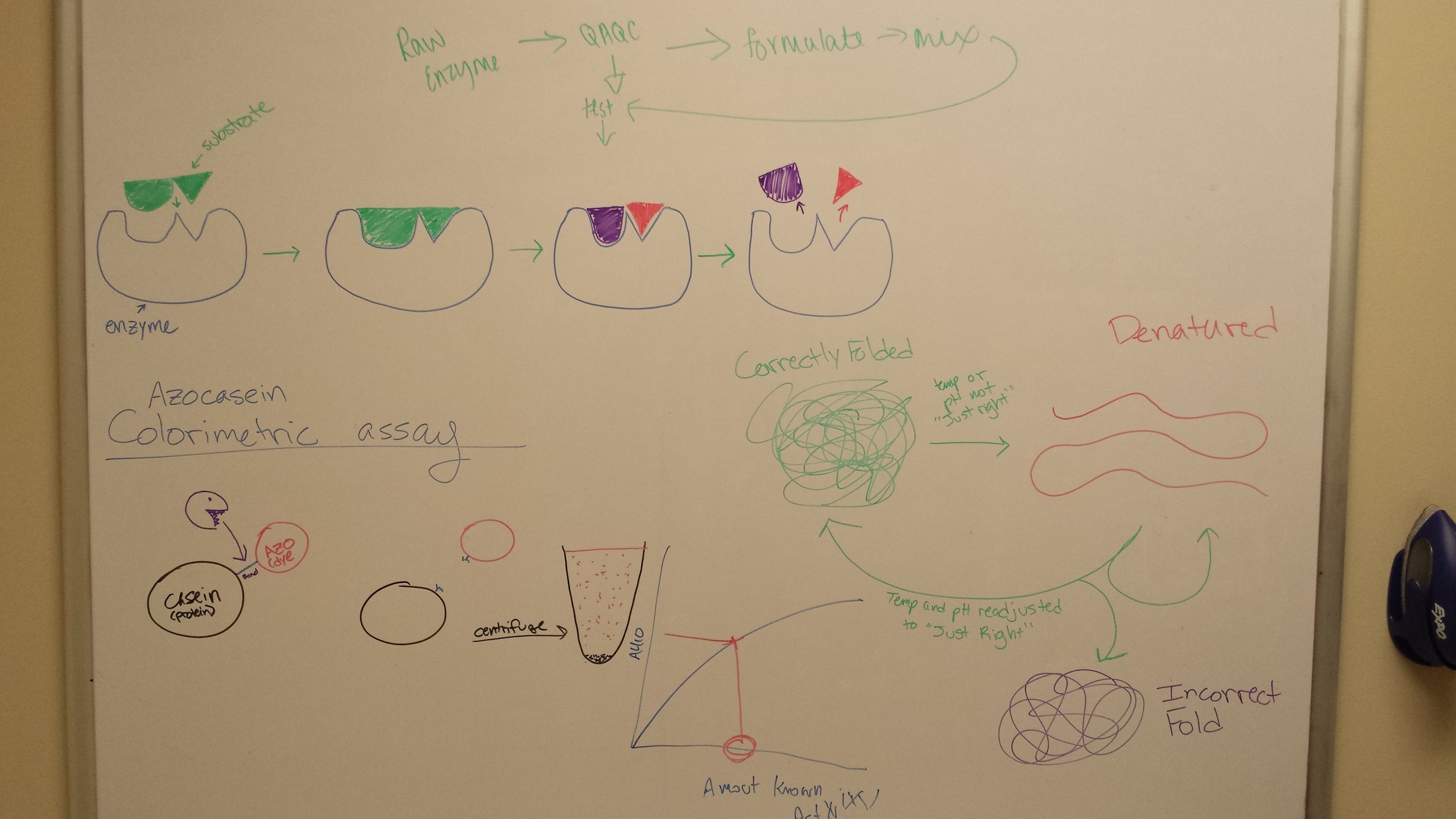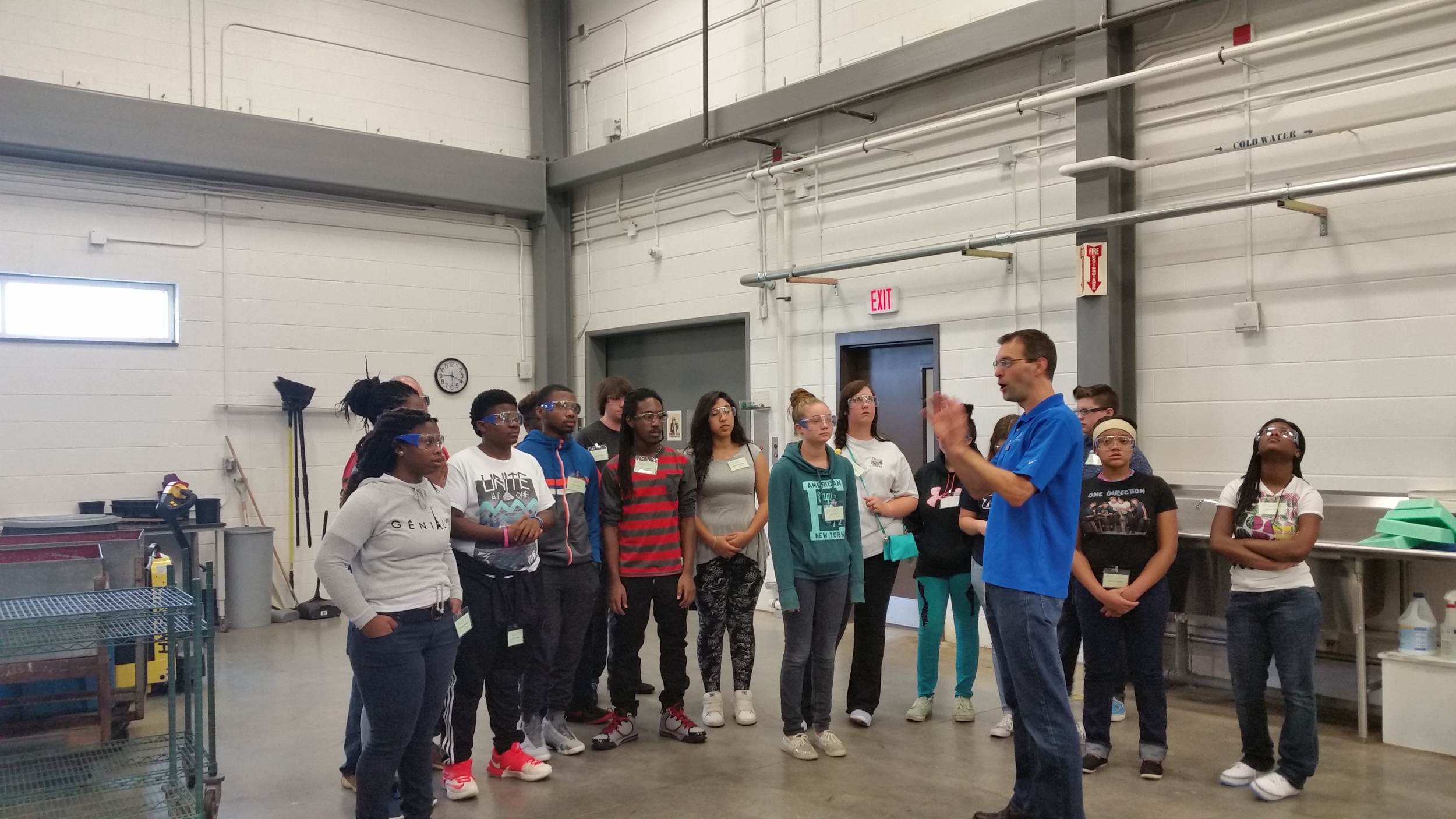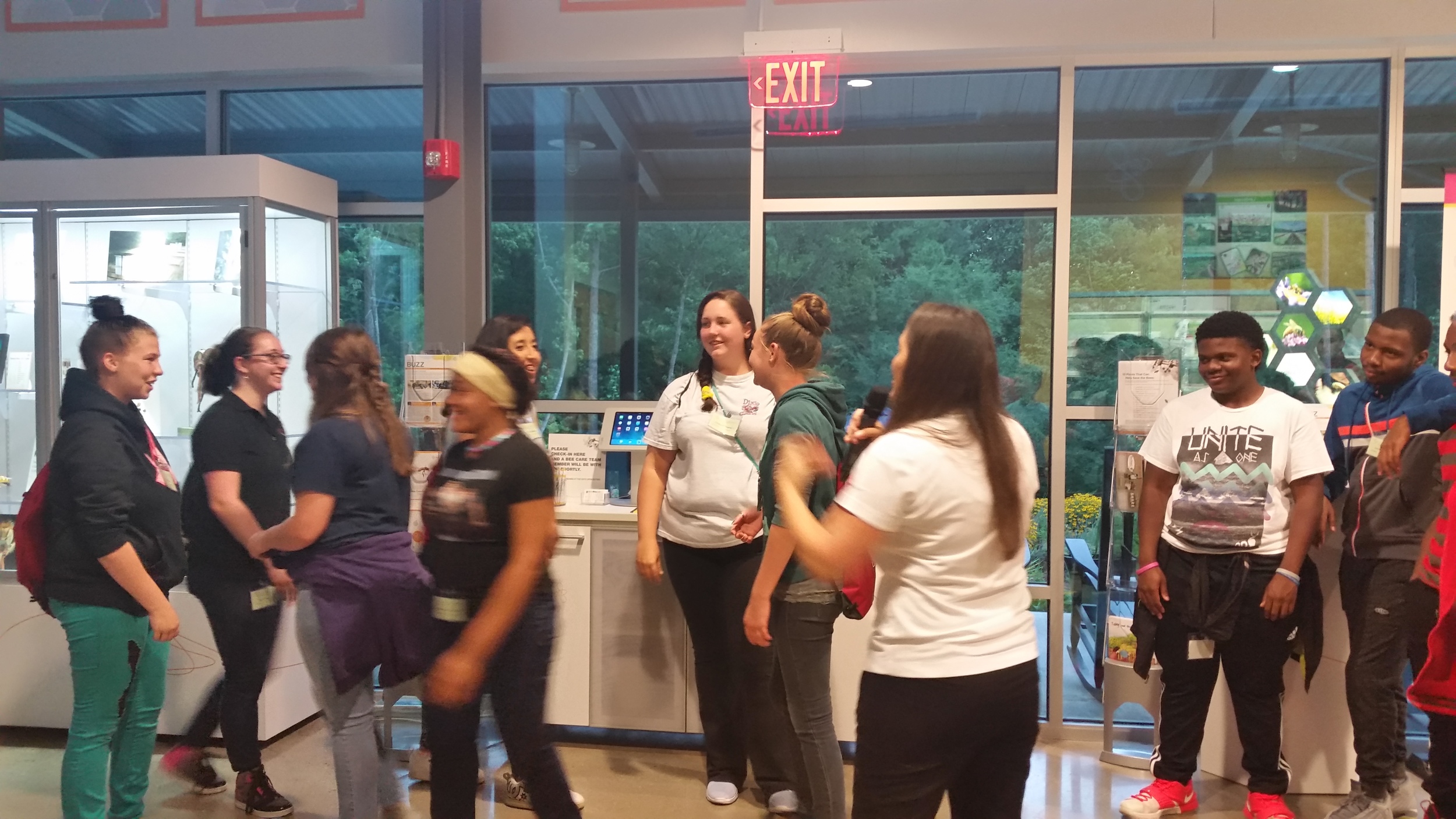Building Partnerships with Industry
During the summer of 2015 the members of Falcon Biomanufacturing MET AND DEVELOPED RELATIONSHIPS WITH:
Novozymes
The scientists, engineers, and leadership of Novozymes RTP hosted the BECHS students for a lunch, poster session, tour, and town hall meeting. The 3hr event was kicked off by a welcome from Novozymes'
Vice President, Thomas Schäfer. He introduced the students to what Novozymes is, and all the ways they use biotechnology, microbiology, and enzymes to improve products the students use every day. He also spoke with them about the importance of being passionate about what you do and how he hopes they will each find careers aligned with their passions.
Following Dr. Schäfer's warm welcome, the BECHS students and the Novozymes colleagues participated in a mini-poster session where employees talked about their research and students presented posters describing their work developing their own recombinant protein production process.
After the poster session, students were treated to a tour of the Novozymes laboratories followed by an informal group discussion where the Novozymes colleagues talked about their individual education, background, and career paths. The students shared their interests in science the Falcon Biomanufacturing project, their career goals, and asked questions about what it was like to work for a company like Novozymes and what they needed to do to make themselves competitive for careers in science.
Monsanto
The Falcon Biomanufacturing students visited the RTP headquarters of Monsanto and toured their amazing state-of-the-art automated green house. The students learned how seeds are sown, tracked and analyzed through various experimental conditions. They learned how biotechnology involves more than just "life sciences" but requires engineering, computer programing, logistics, analytics among other disciplines.
Following the tour the students met with the Monsanto colleagues to discuss Monsanto's mission to develop the technology to ensure we can produce enough food to meet the growing global demand. When asked why she likes her job, Toni Wilkins (chemical engineer by training) said "I don't want to live in a world where we have to decide who gets to eat and who doesn't. Here i feel like I'm contributing to the solutions that will prevent that from happening and ensuring everyone has access to the food then need."
BioResource International
In the interest of presenting them an alternative to large multinational corporations, the students also visited BioResource International (BRI). This relatively young biotech company, founded in 1999, is based on discoveries made at NC State University. BRI has commercialized 3 animal feed enzyme products to date, with distribution to over 30 countries worldwide.
They were introduced to BRI, its history, and its products by two of their newest employees, recent graduates from NC State who had interned at BRI. The students then toured BRI's laboratories, and learned about feed enzymes, how they work, and how the enzymes BRI makes are helping to improve food animal production around the world.
Following their tour when asked about their career goals, many of the students expressed enthusiasm for working at a biotech company with the international impact, yet close family culture, like they saw at BRI.
Bayer Crop Science
The students of Falcon Biomanufacturing visited the Bayer Crop Science RTP campus where Groupleader and Greenhouse director Dr. Kurt Boudonck took them on a tour of the greenhouse facilities. Dr. Boudonck described the various types of traditional and biotechnology based science tools Bayer Crop Science is developing to produce new varieties of plants with increased yields to ensure an adequate and global food supply. Along the tour he answered questions from the students about the challenges facing this type of research and the amount of work that goes into the development of these new plants.
In addition to the greenhouse, the students visited the Bee Health Center. Dr. Kim Huntzinger introduced the students to the very serious problem facing bees worldwide and how much our global food production system depends on bees. This was the first time most of the students had ever heard that bee populations are dying or that this is a major problem for food production. Through some very fun and interactive demonstrations Dr. Huntzinger demonstrated to the students how bee societies are structured, how that fits into the role they play as pollinators of crops, how that is also involved in colony collapse, and the innovative research being done to promote healthy bee populations.
